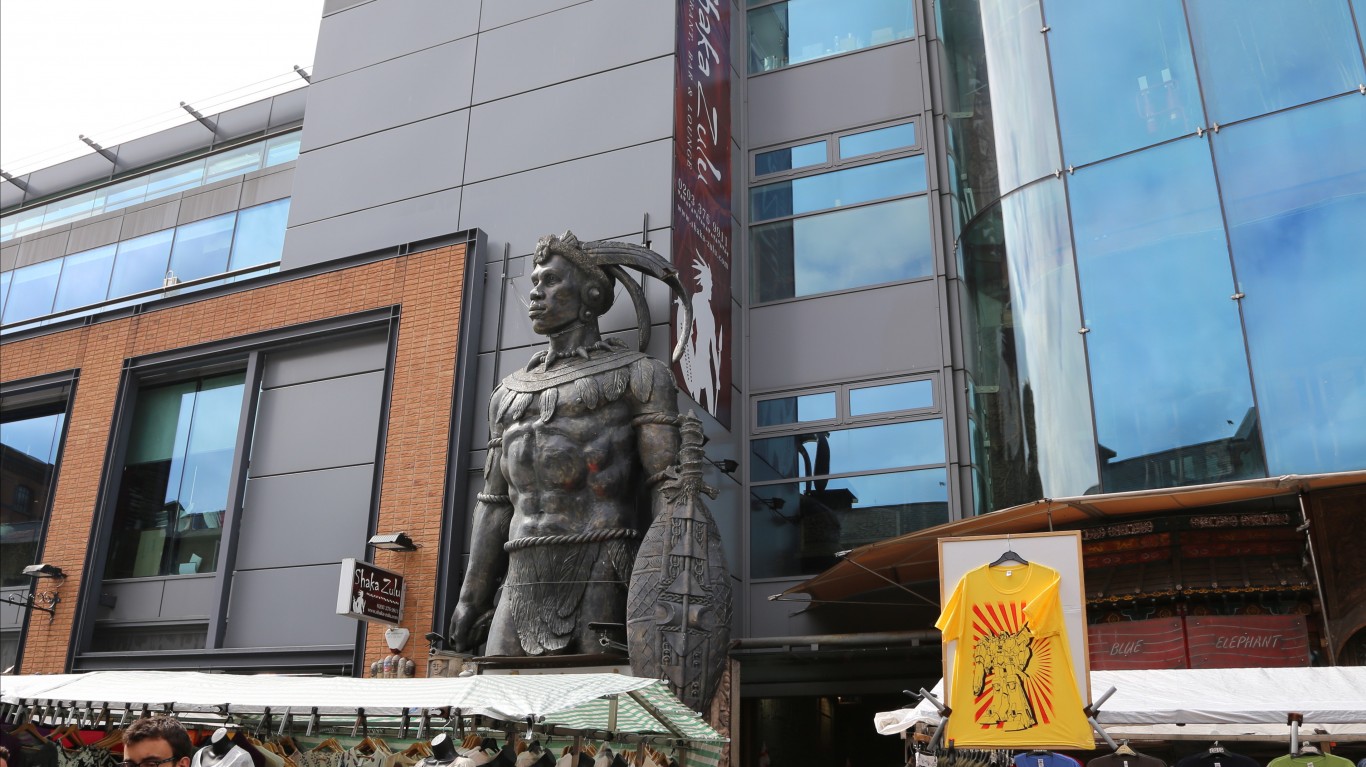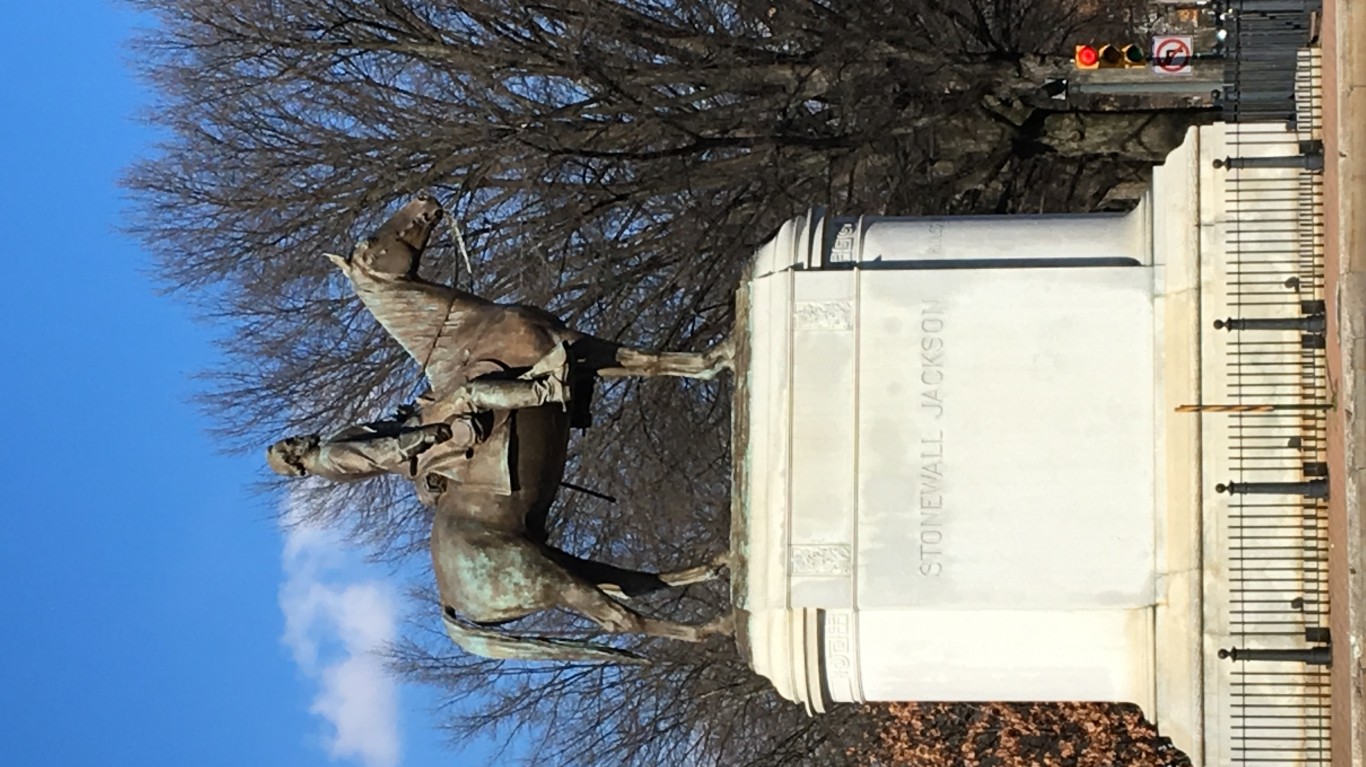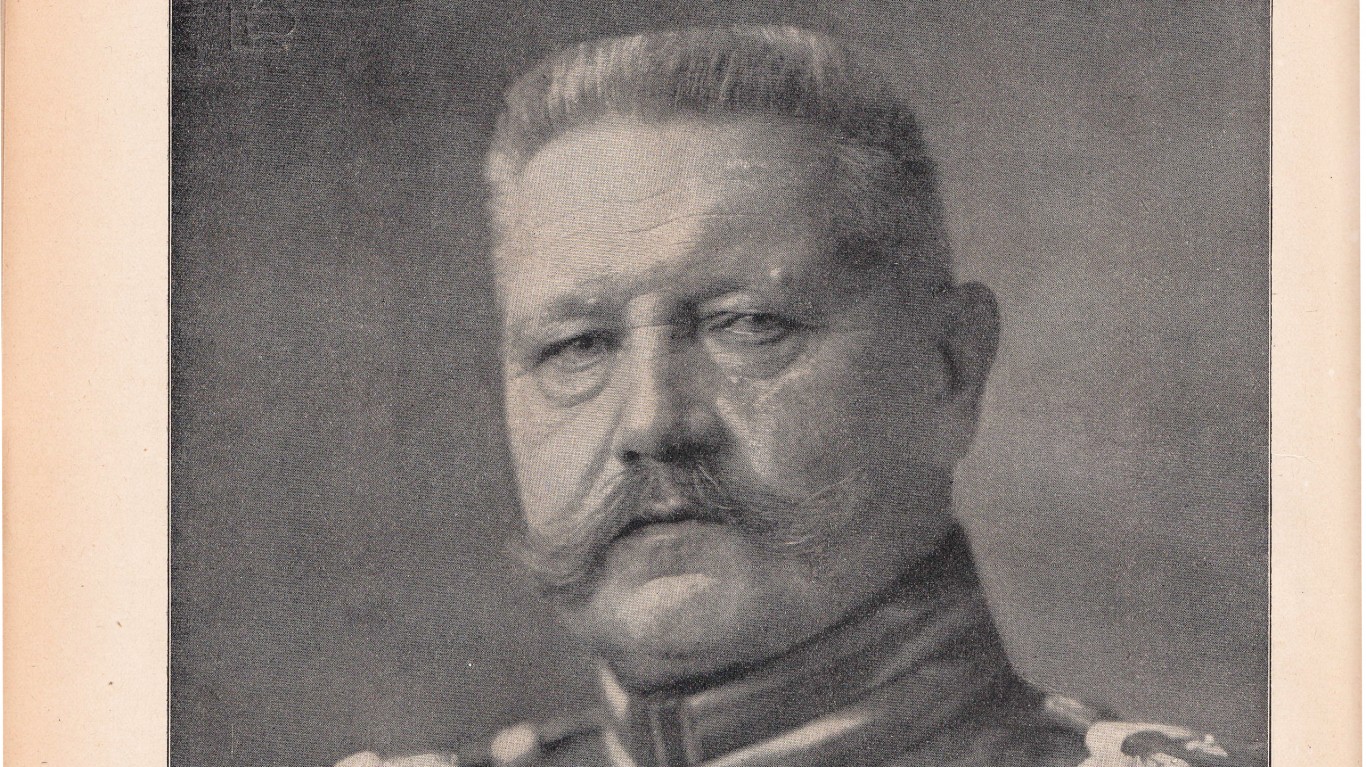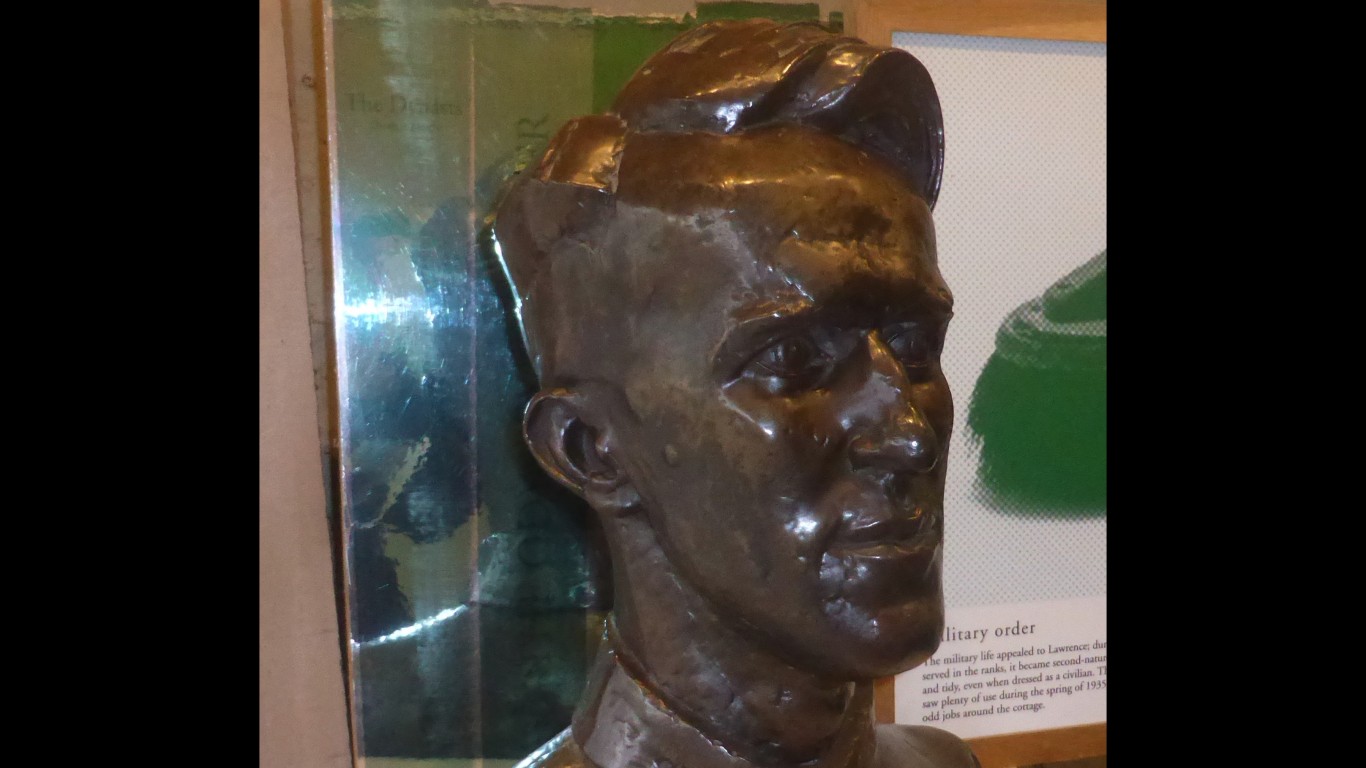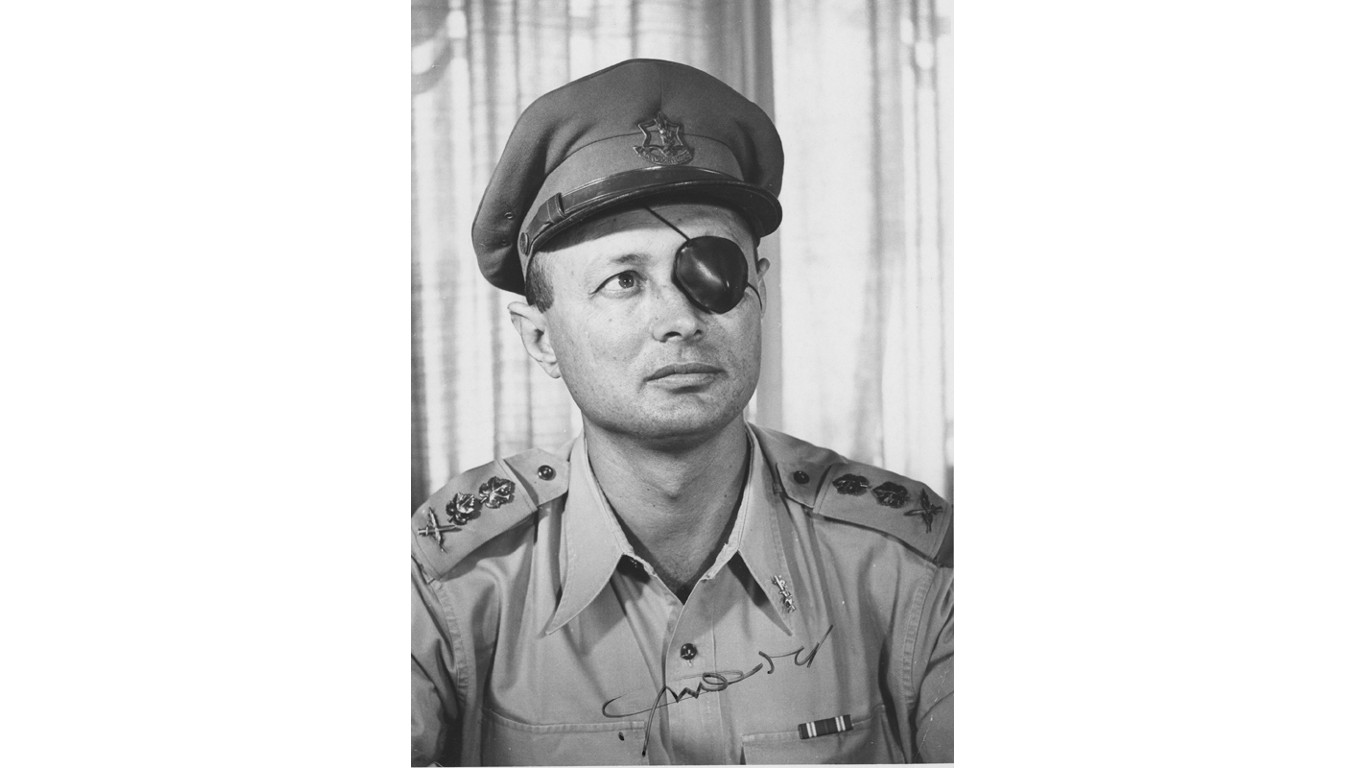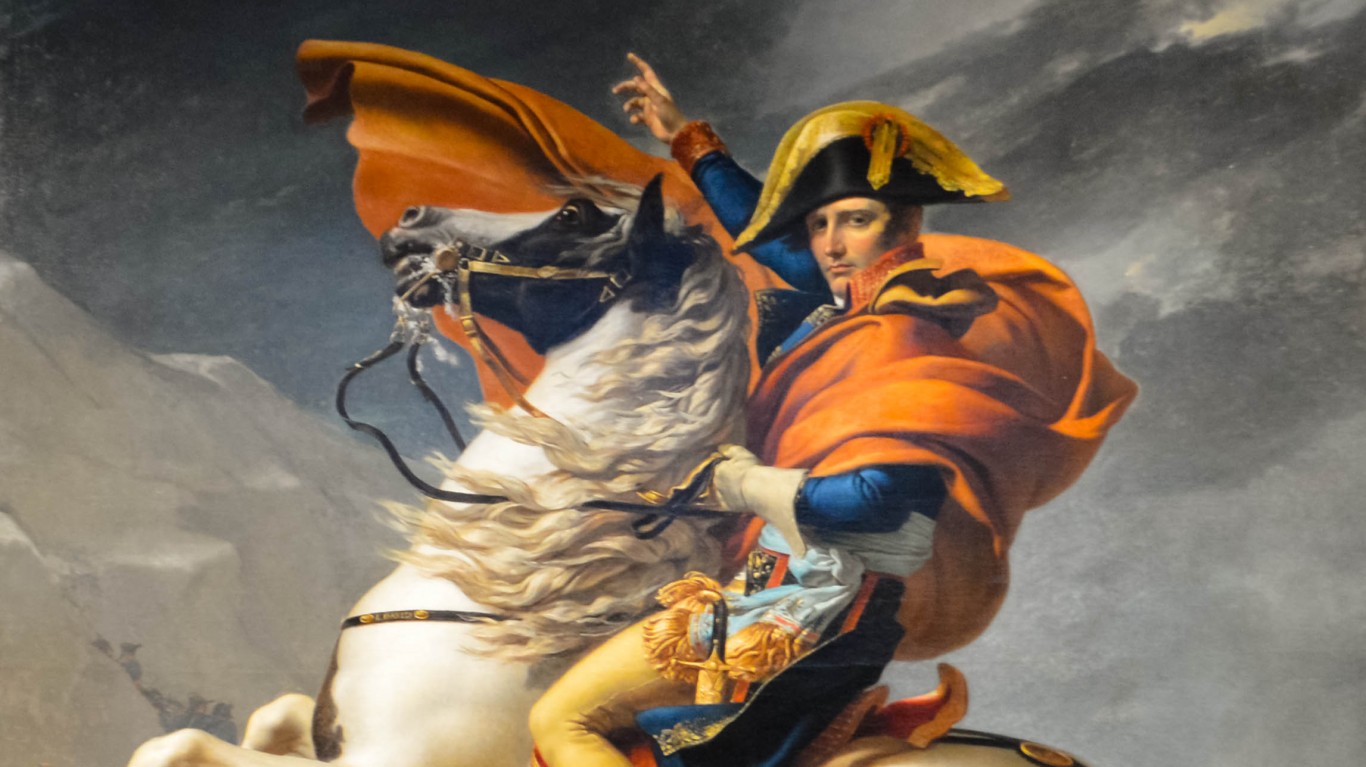
Throughout history, a disproportionate share of legends and stories have been about military leaders who defied the odds and used their genius to secure victory. From those early stories, through modern day, there have been kings, admirals, generals, and conquerors who are revered as tactical geniuses. A number of these men and women died during their greatest battles. Many others continued to make their mark on history long after their military careers ended.
Referencing research conducted by history site Historynet, 24/7 Wall St. chose 60 of history’s most important military commanders. These leaders — who due to long-standing inequality in military eligibility are almost exclusively men — are listed in chronological order of the year or years during which they fought their most important battle or waged their most important campaign. (Also see, 50 of the most decorated war heroes in American history.)
Many of the figures on this list are not merely military figures but rulers of nations. Some, such as Genghis Khan and Alexander the Great, were conquerors, expanding the boundaries of their empires. Others were able to leverage public adoration earned through battlefield exploits into political appointments and elected office. Several of America’s most successful commanders became president, including America’s first president. These are the presidents who served in the U.S. military.
It should go without saying that while these leaders were exceptionally adept at military tactics, they were in many cases far from admirable human beings. Many acted in support of genocidal regimes or themselves led brutal campaigns of total war, laying waste to cities and doing far worse to their enemies. The qualities that make great commanders are by no means guaranteed to make great men.
Click here to see the greatest wartime leaders in history
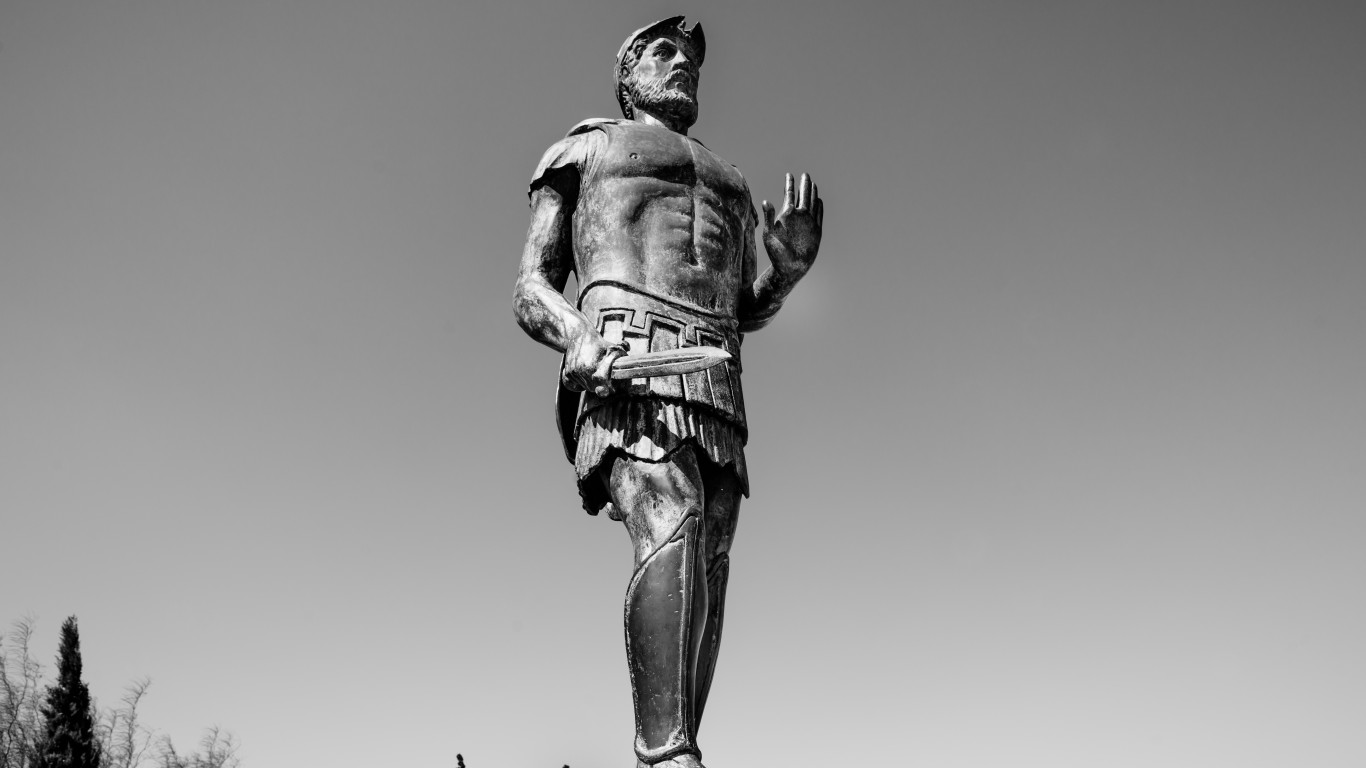
1. Miltiades
> Nation: Athens
> Year(s) of peak military relevance: 490 B.C.
Miltiades led the heavily outnumbered Athenians to victory over the Persians at the battle of Marathon.
[in-text-ad]
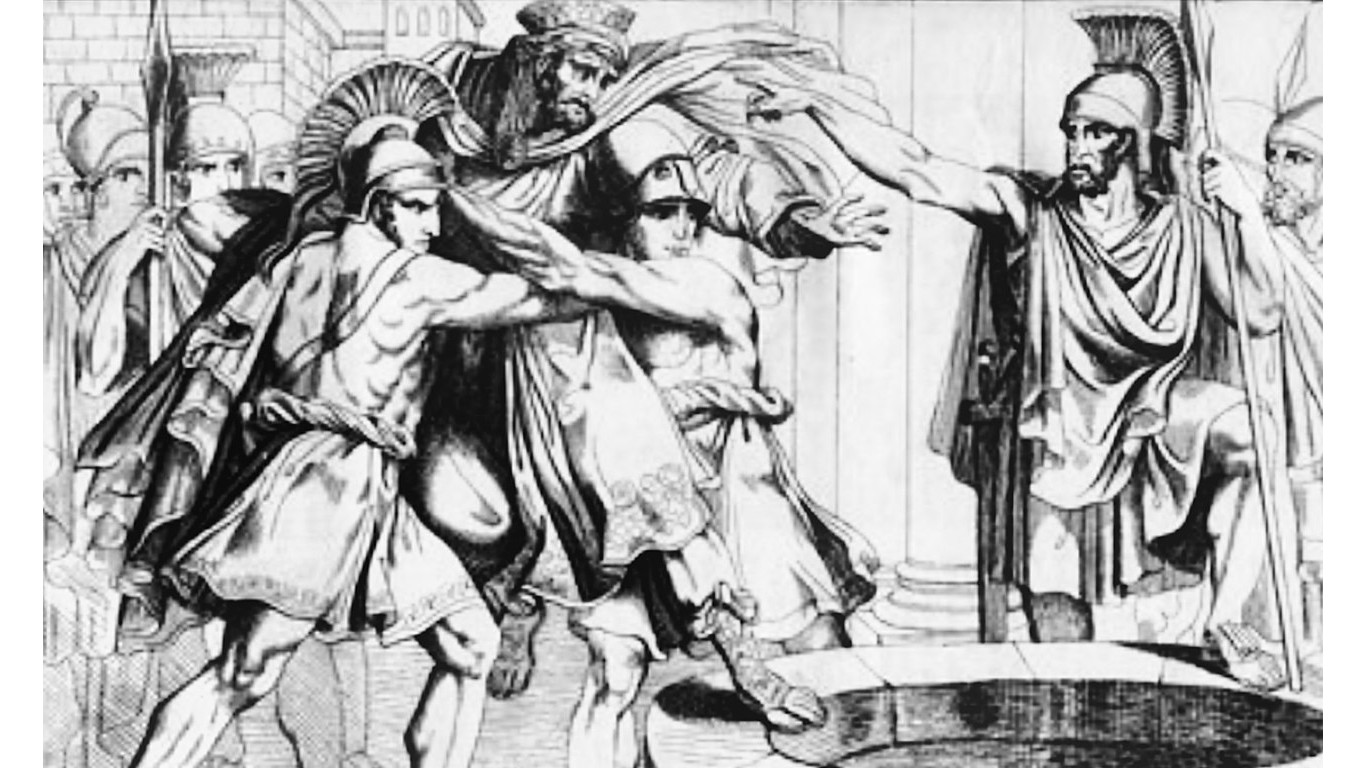
2. Leonidas
> Nation: Sparta
> Year(s) of peak military relevance: 480 B.C.
Made famous by a 2006 film, Leonidas fought the Battle of Thermopylae with 300 Spartans against a massive Persian army, ultimately losing but becoming legends.
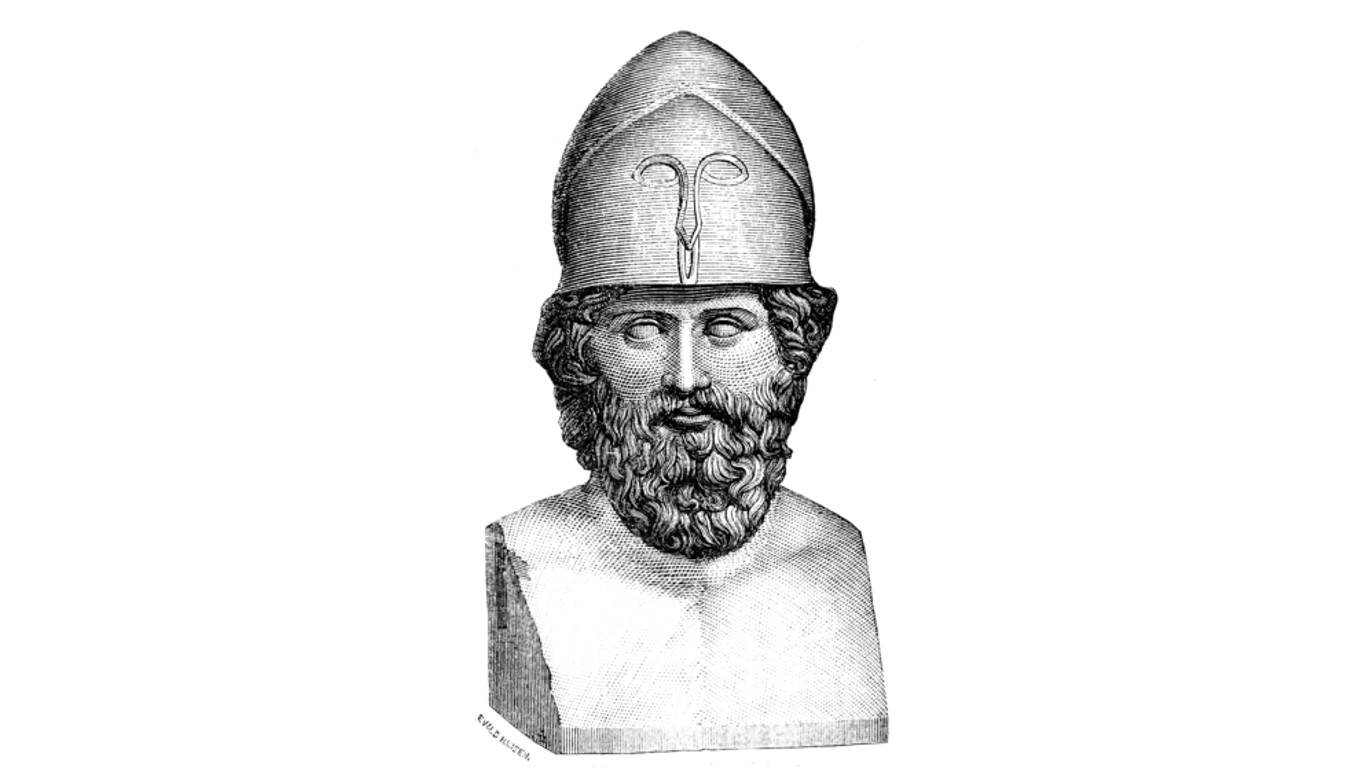
3. Themistocles
> Nation: Athens
> Year(s) of peak military relevance: 480 B.C.
Themistocles won the naval Battle of Salamis despite being heavily outnumbered by the Persian navy. He timed the battle in such a way that forced the Persians into narrow channels, and then the Greeks rammed and sank the tightly packed enemy fleet.
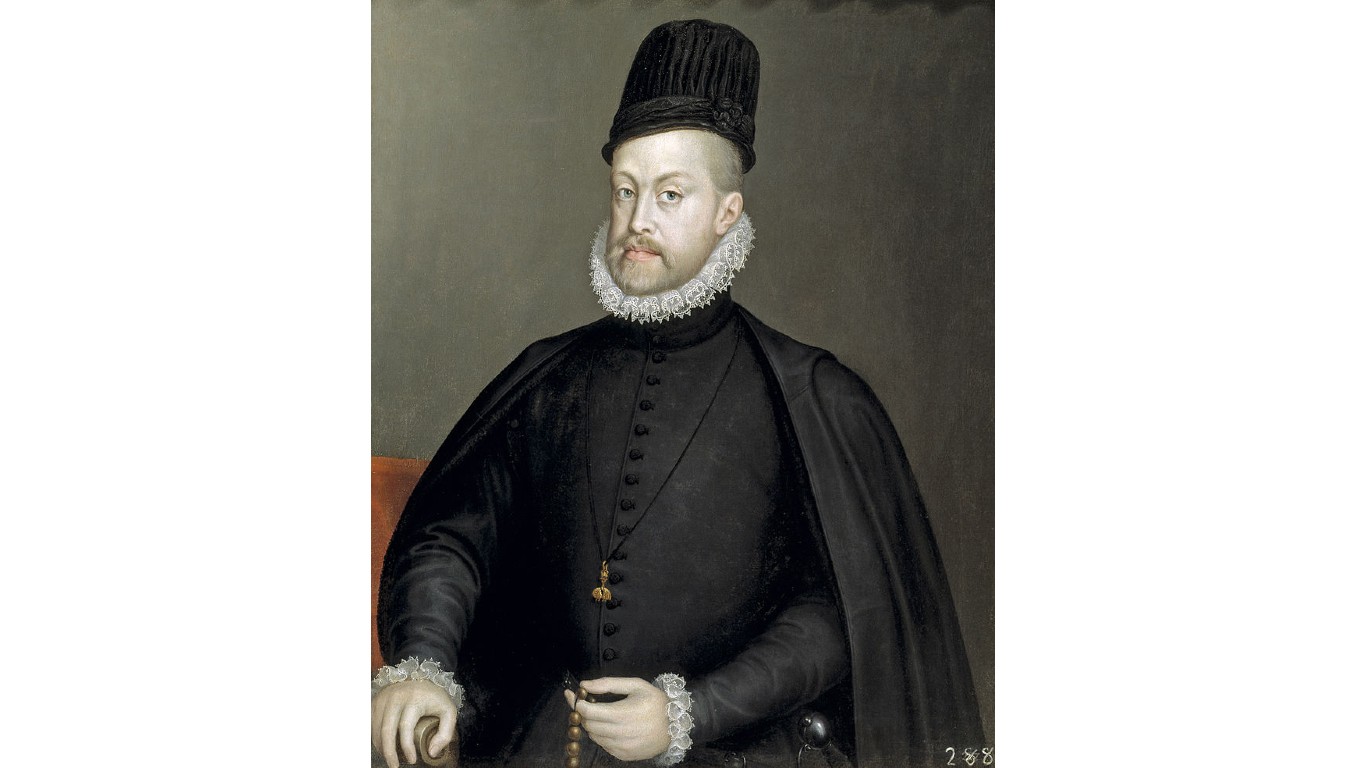
4. Philip II
> Nation: Macedonia
> Year(s) of peak military relevance: 337 B.C.
The Macedonian King conquered Greece, which he then handed to his son, who would come to be known as Alexander the Great.
[in-text-ad-2]
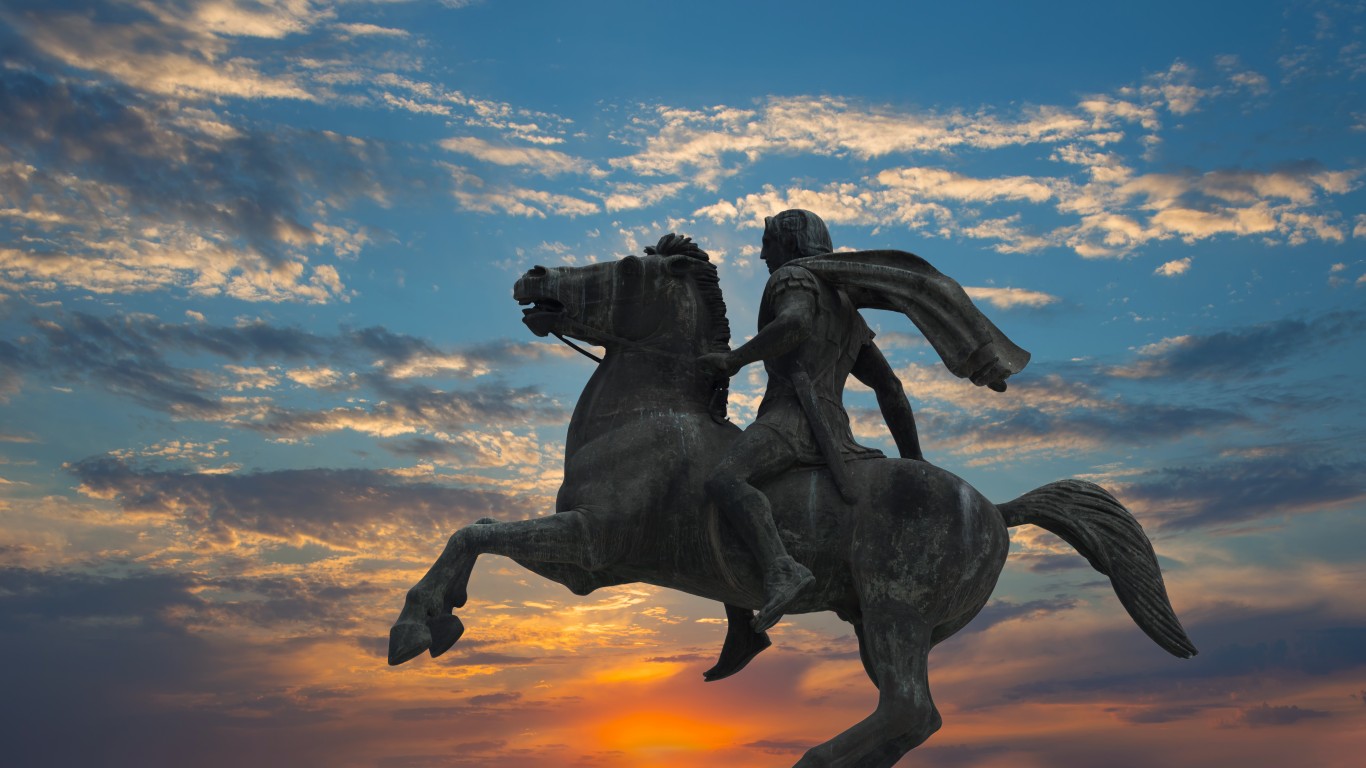
5. Alexander the Great
> Nation: Macedonia
> Year(s) of peak military relevance: 336-323 B.C.
The famous leader overthrew the Persian Empire, establishing a vast empire of his own, spanning from Greece to Egypt and India.
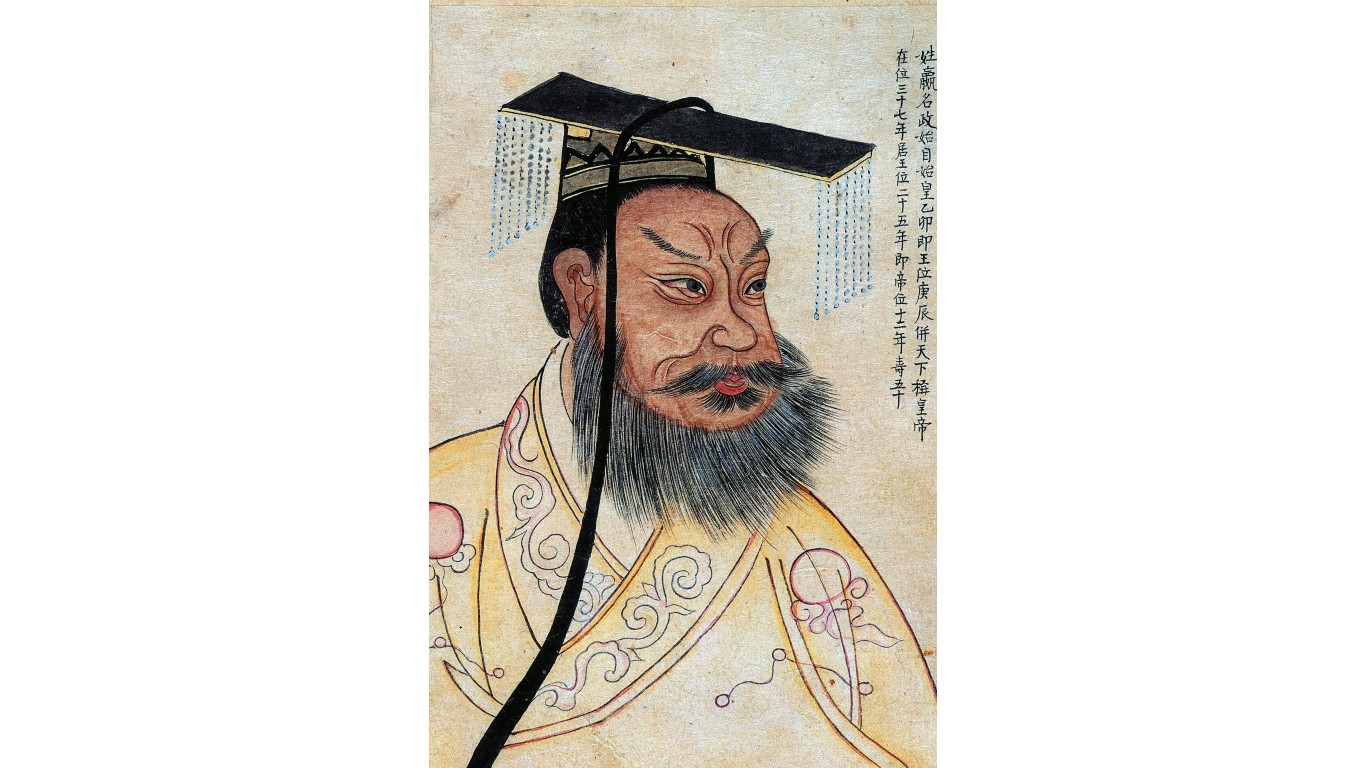
6. Qin Shi Huang
> Nation: China
> Year(s) of peak military relevance: 221-210 B.C.
Qin Shi Huang unified China, became its first emperor, and built the Great Wall.
[in-text-ad]
7. Hannibal
> Nation: Carthage
> Year(s) of peak military relevance: 216 B.C.
Using cutting-edge tactics, the famous general won many battles, including the Battle of Cannae, one of the worst defeats in Rome’s history.
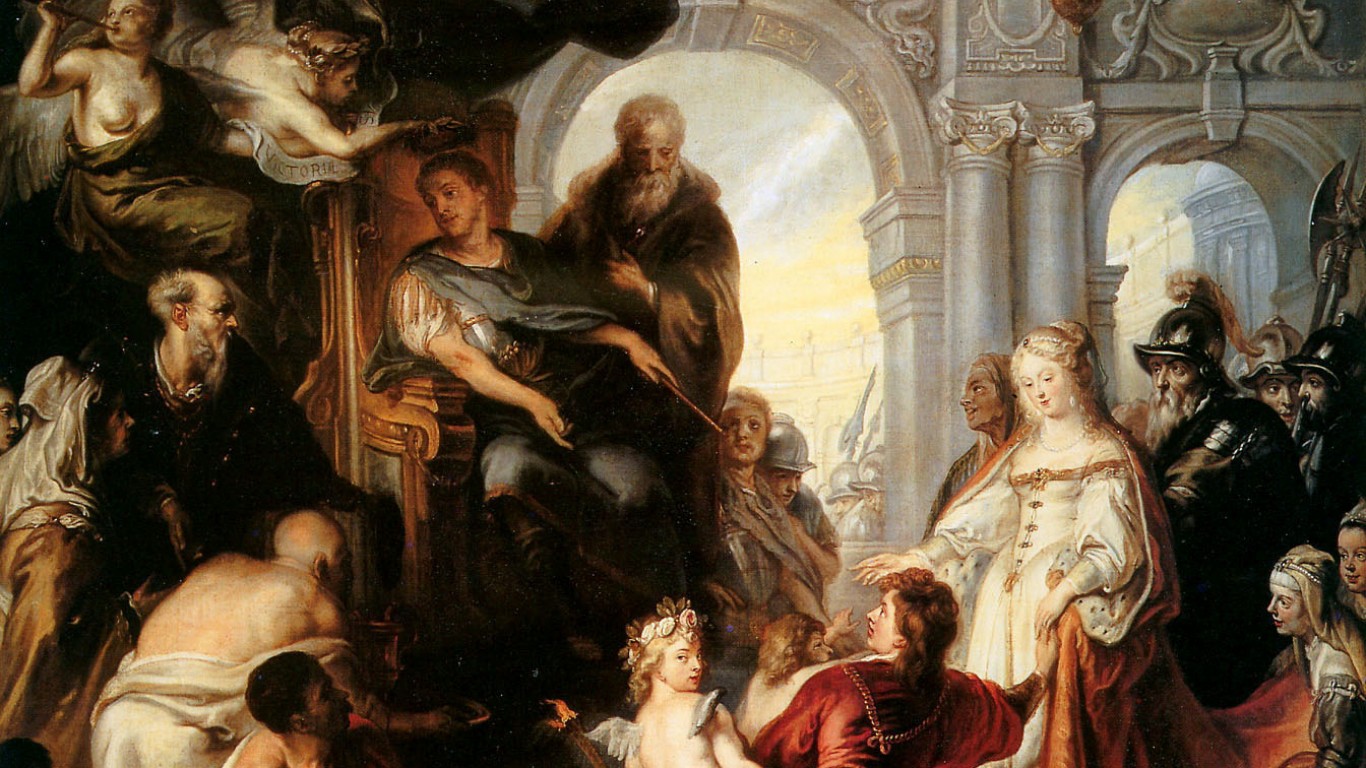
8. Scipio Africanus
> Nation: Rome
> Year(s) of peak military relevance: 202 B.C.
Scipio defeated Hannibal at Zana, securing the strength of the Roman Empire for centuries to come.
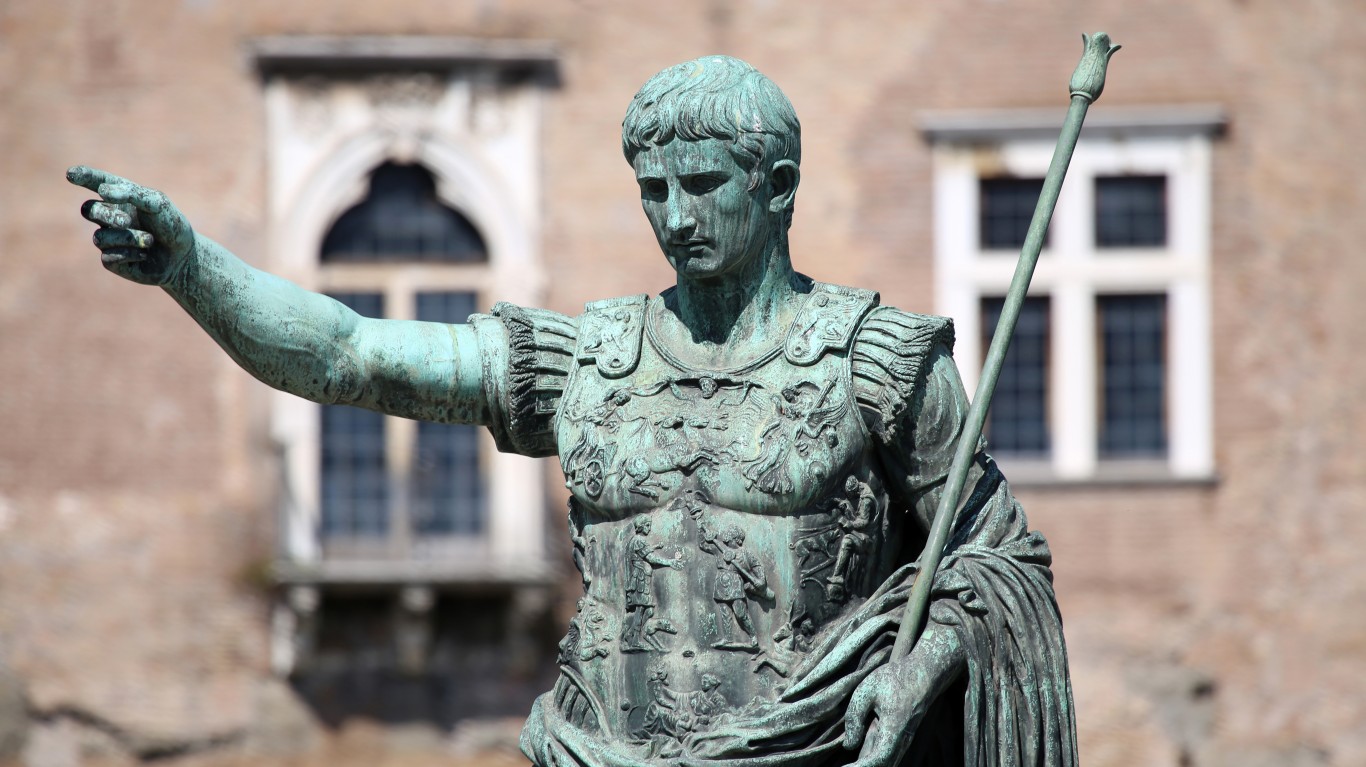
9. Julius Caesar
> Nation: Rome
> Year(s) of peak military relevance: 100-44 B.C.
The leader of Rome Conquered Gaul, earning him tremendous fame and support from the Roman people, enough so that he was able to declare himself dictator of Rome. The power he attained eventually cost him his life, as he was assassinated by the members of the Senate.
[in-text-ad-2]
10. Marcus Agrippa
> Nation: Rome
> Year(s) of peak military relevance: 31 B.C.
Marcus Agrippa won the Battle of Actium against Anthony and Cleopatra’s fleet, solidifying Octavian’s control of Rome.
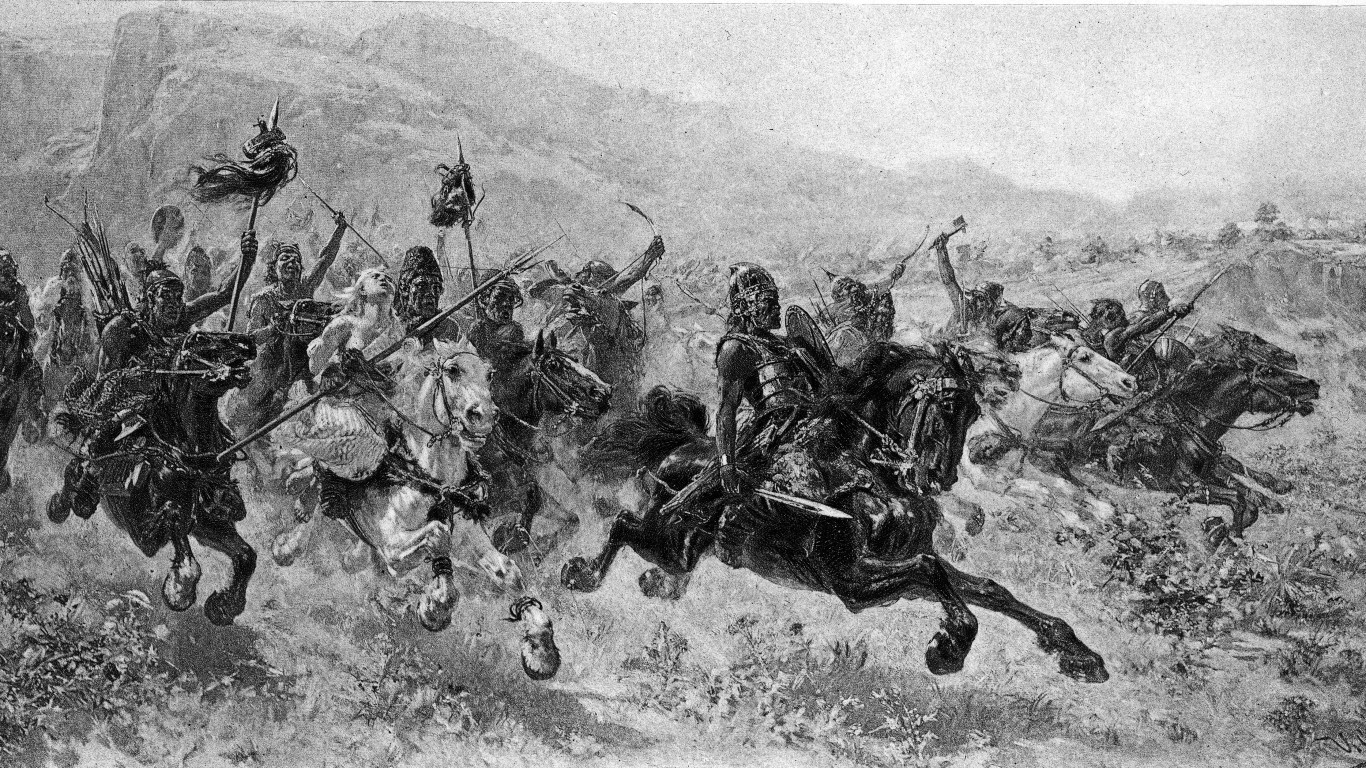
11. Attila the Hun
> Nation: Hun Empire
> Year(s) of peak military relevance: 450
The famous conqueror hastened the fall of the Western Roman Empire.
[in-text-ad]
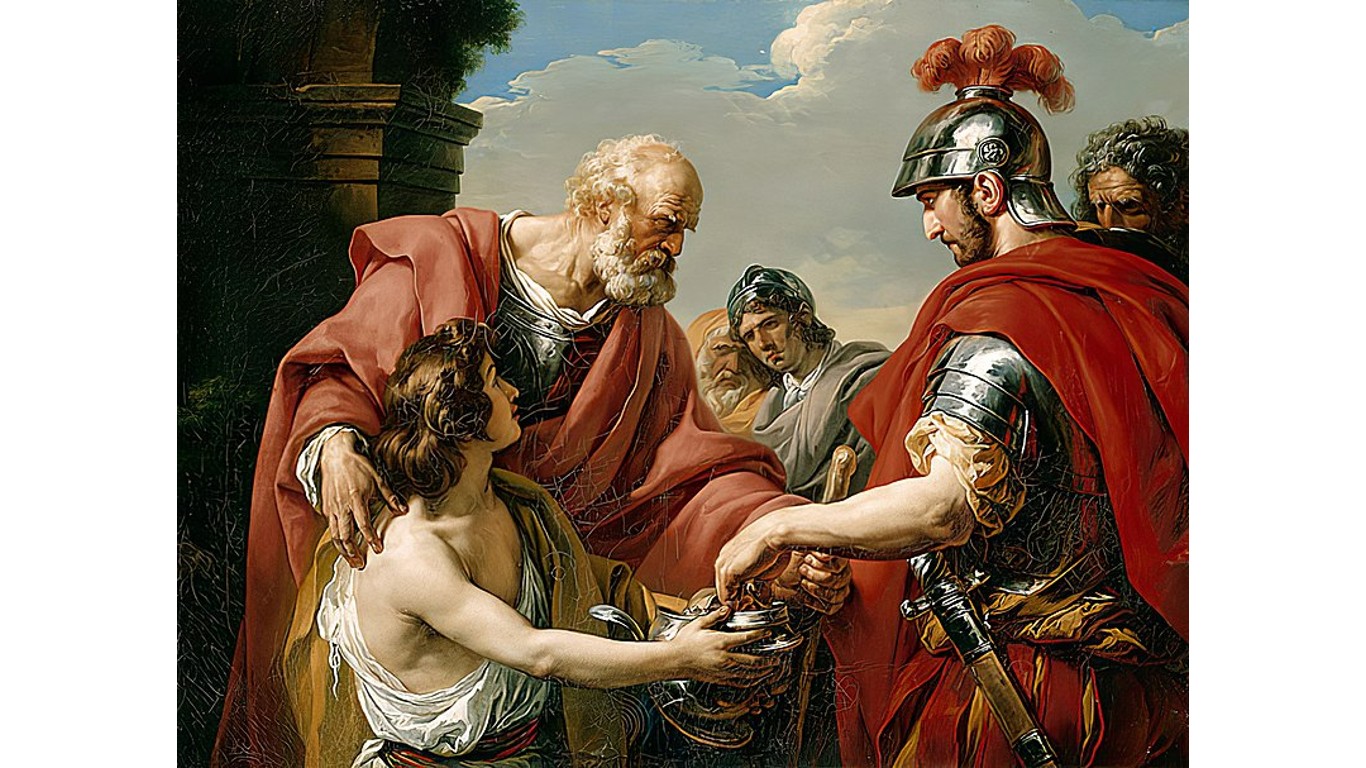
12. Flavius Belisarius
> Nation: Byzantine Empire
> Year(s) of peak military relevance: 536
Flavius Belisarius retook much of the Mediterranean territory that had been lost by the disintegrated Western Roman Empire.
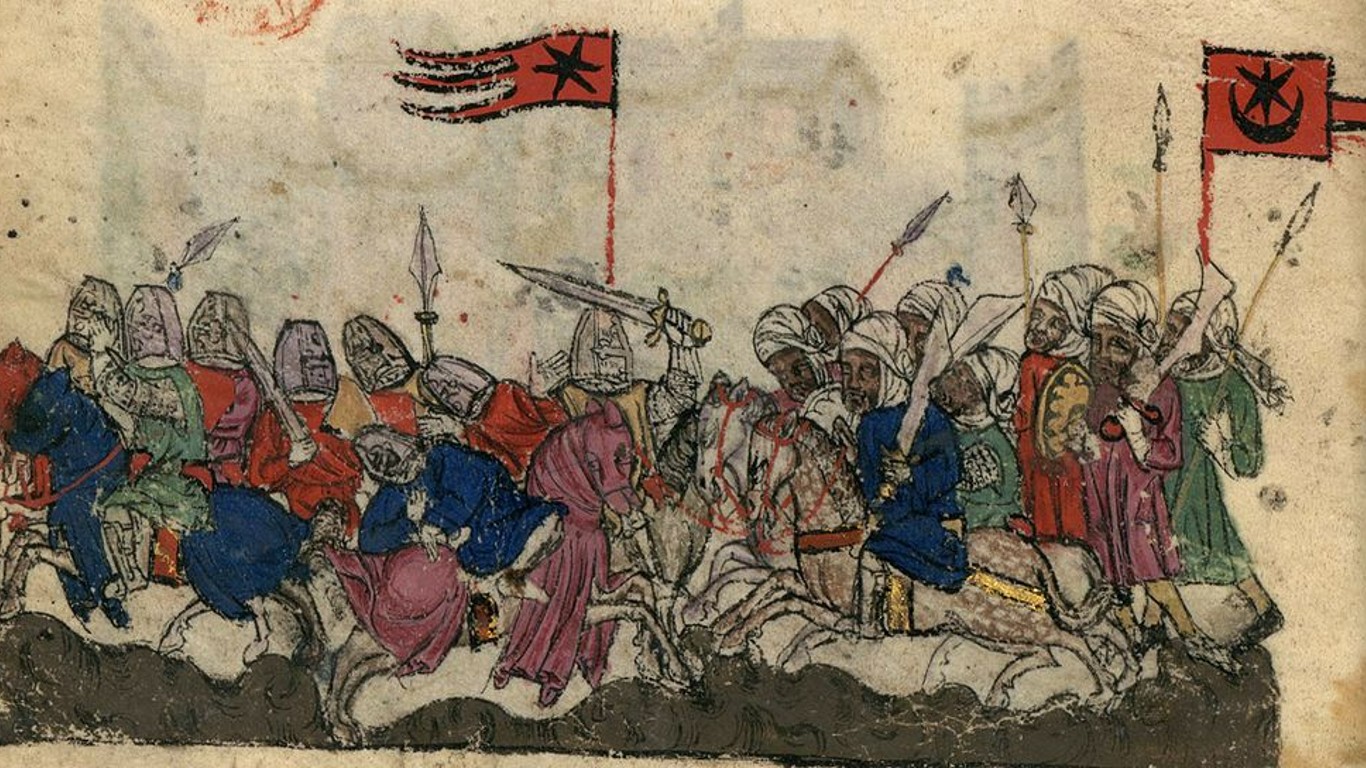
13. Khalid ibn al-Walid
> Nation: Muhammad
> Year(s) of peak military relevance: 625-638
The general was undefeated in more than 100 battles against the Byzantines, the Persians, and others.
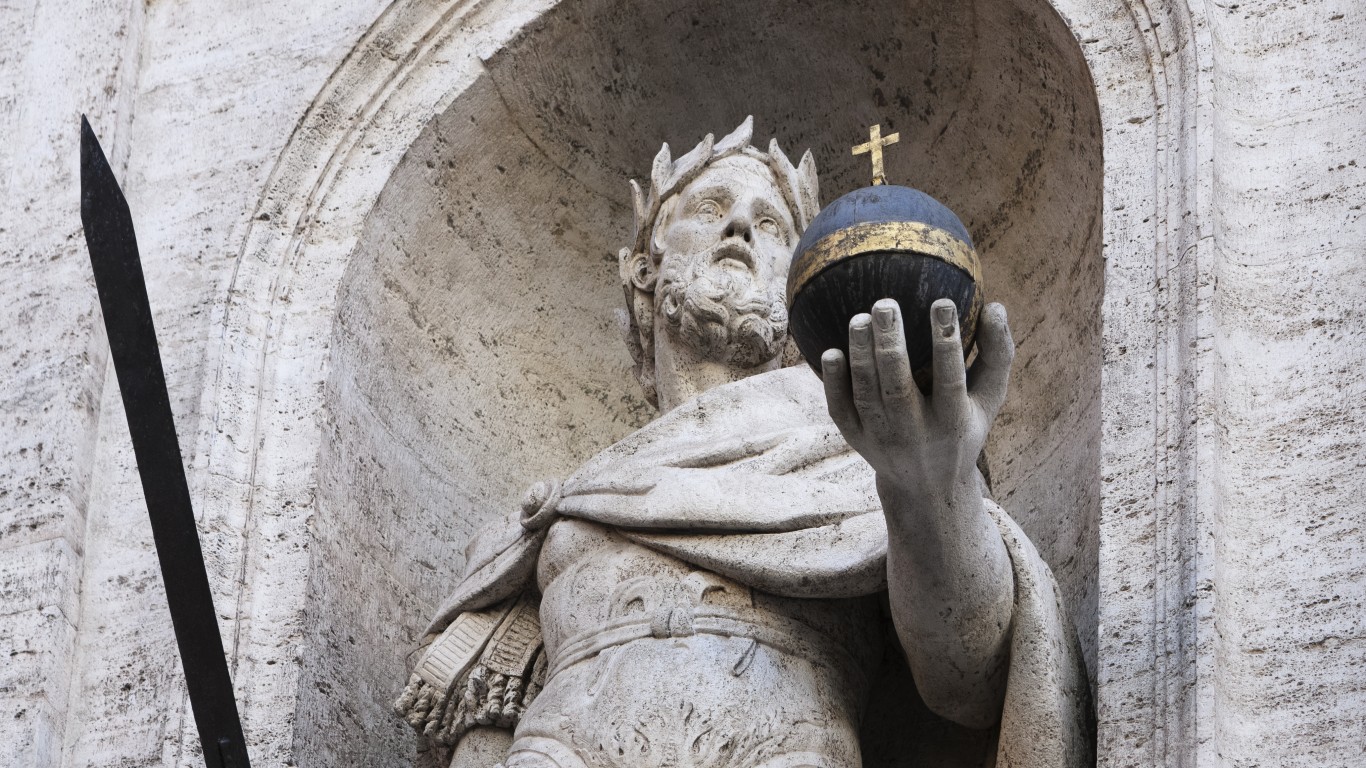
14. Charlemagne
> Nation: The Franks
> Year(s) of peak military relevance: 742- 814
Charlemagne conquered much of Europe and established what would become the Holy Roman Empire.
[in-text-ad-2]
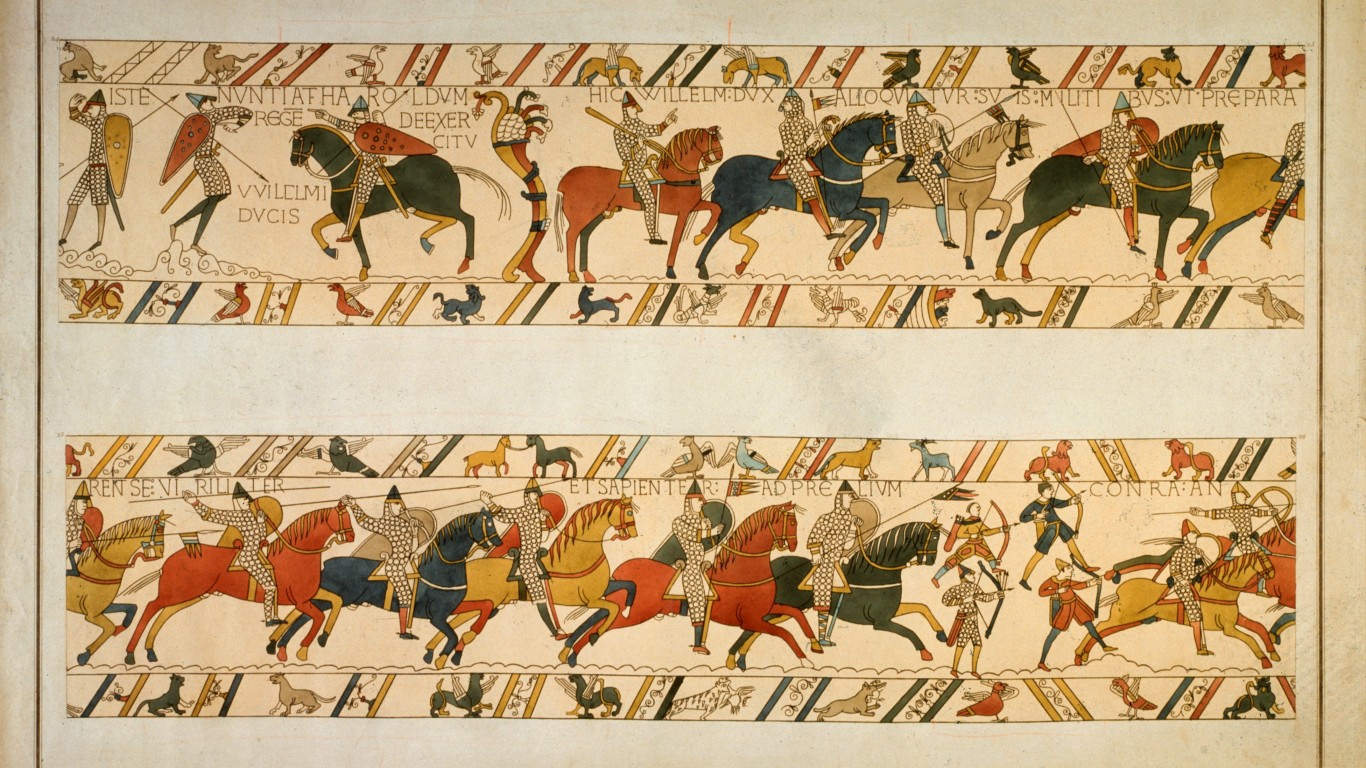
15. William the Conqueror
> Nation: England
> Year(s) of peak military relevance: 1066
The Norman king won the Battle of Hasting against the Anglo-Saxons, which led the Norman conquest of England.
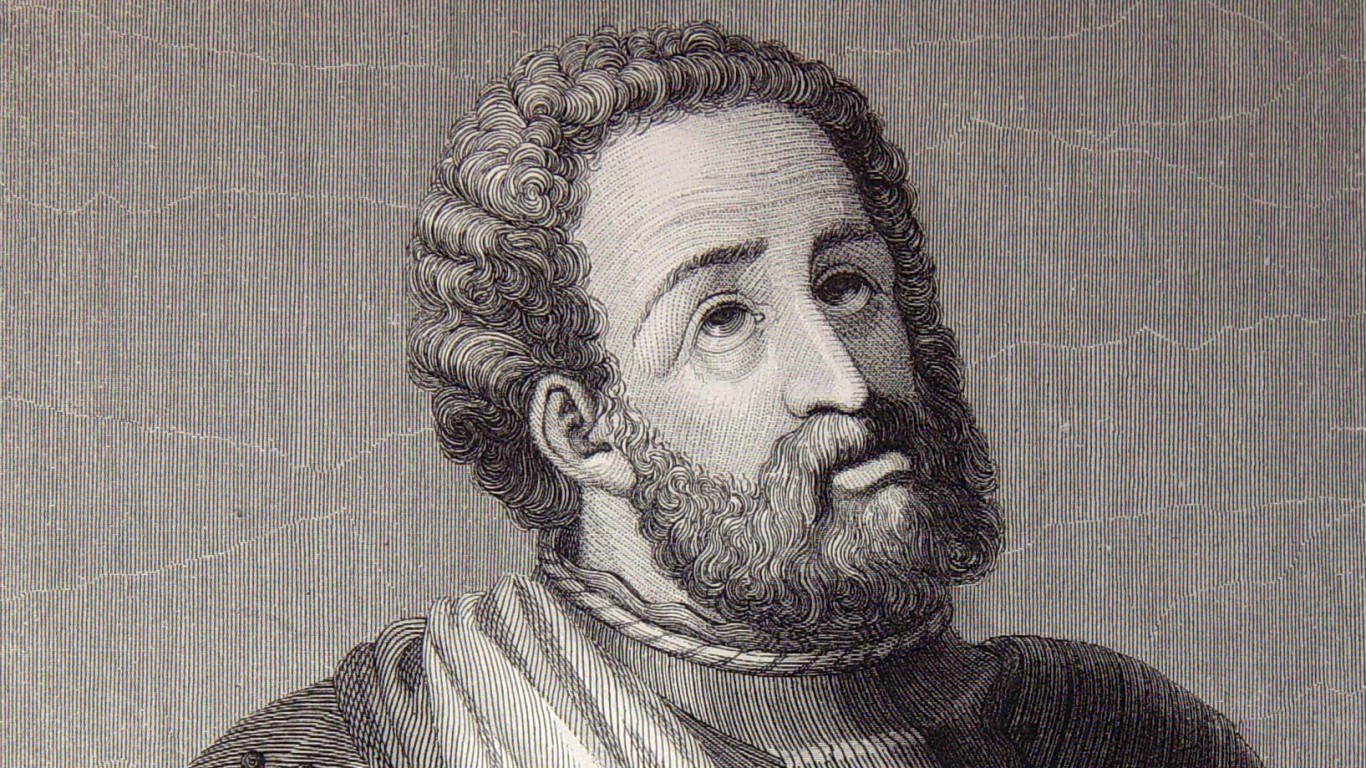
16. Rodrigo Diaz de Vivar
> Nation: Spain
> Year(s) of peak military relevance: 1044-1099
Rodrigo Diaz de Vivar used innovative tactics to defeat Moorish and Christian armies.
[in-text-ad]
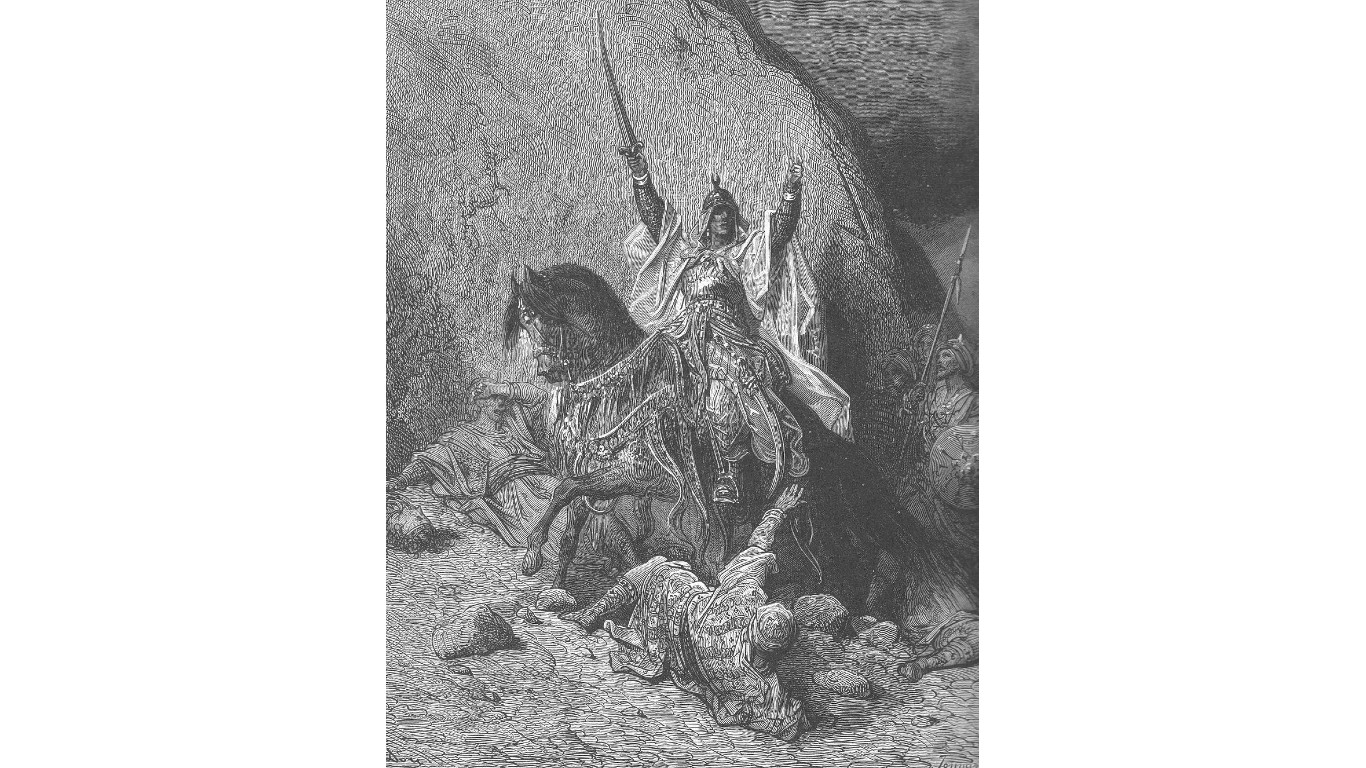
17. Saladin
> Nation: Egypt and Syria
> Year(s) of peak military relevance: 1187
The legendary sultan defeated multiple crusader armies and ruled a kingdom spanning close to 800,000 square miles at its peak.
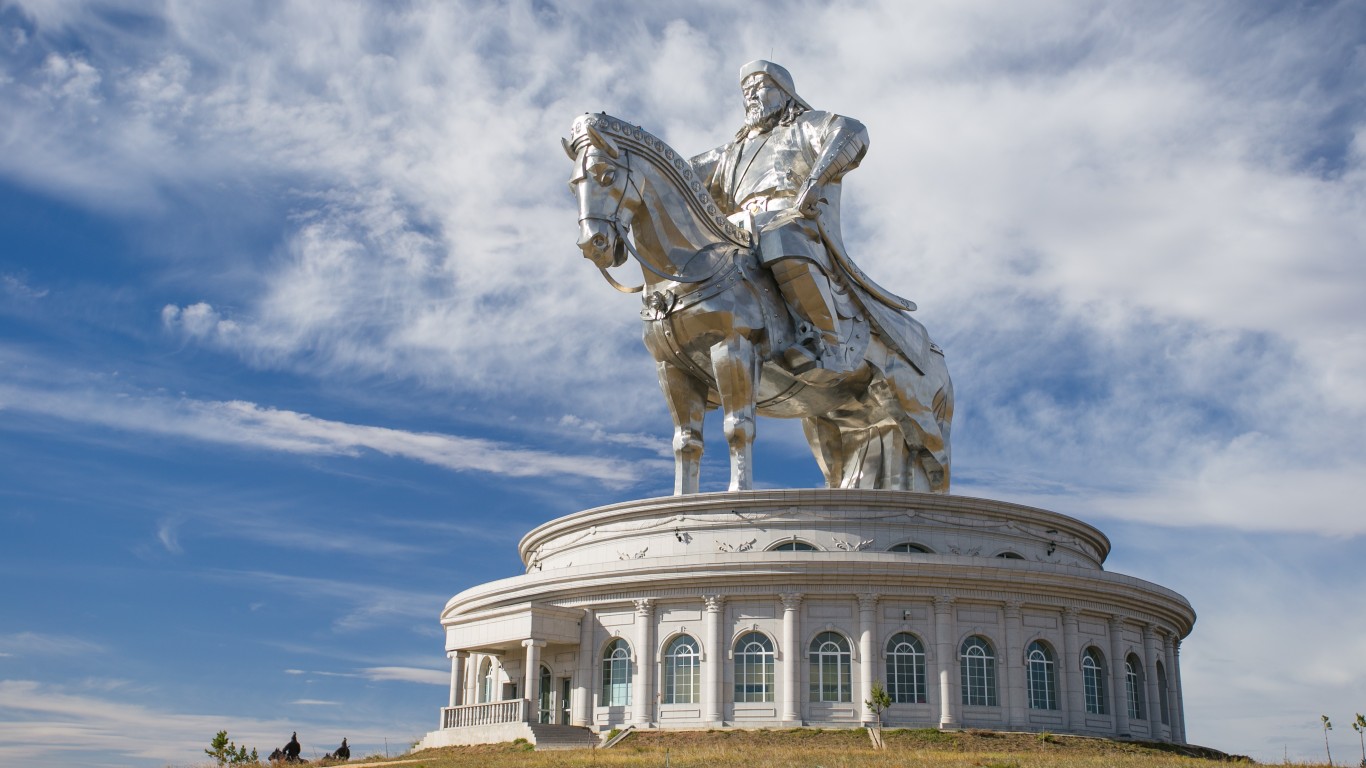
18. Genghis Khan
> Nation: Mongolia
> Year(s) of peak military relevance: 1227
Genghis Khan built the largest contiguous empire in history. Geneticists discovered that one in every 200 males alive today is the Mongol leader’s descendant.
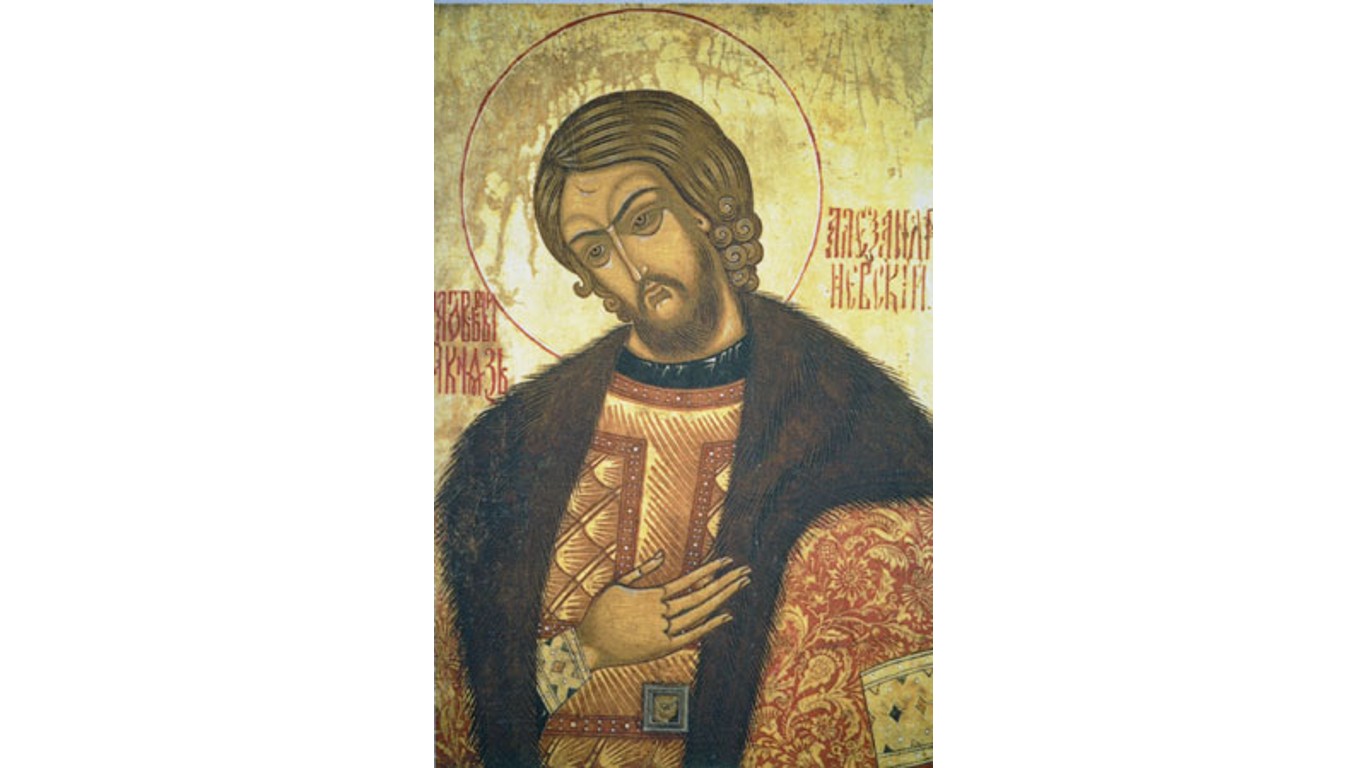
19. Alexander Nevsky
> Nation: Russia
> Year(s) of peak military relevance: 1242
Alexander Nevsky defeated invading Teutonics at the Battle of Ice.
[in-text-ad-2]
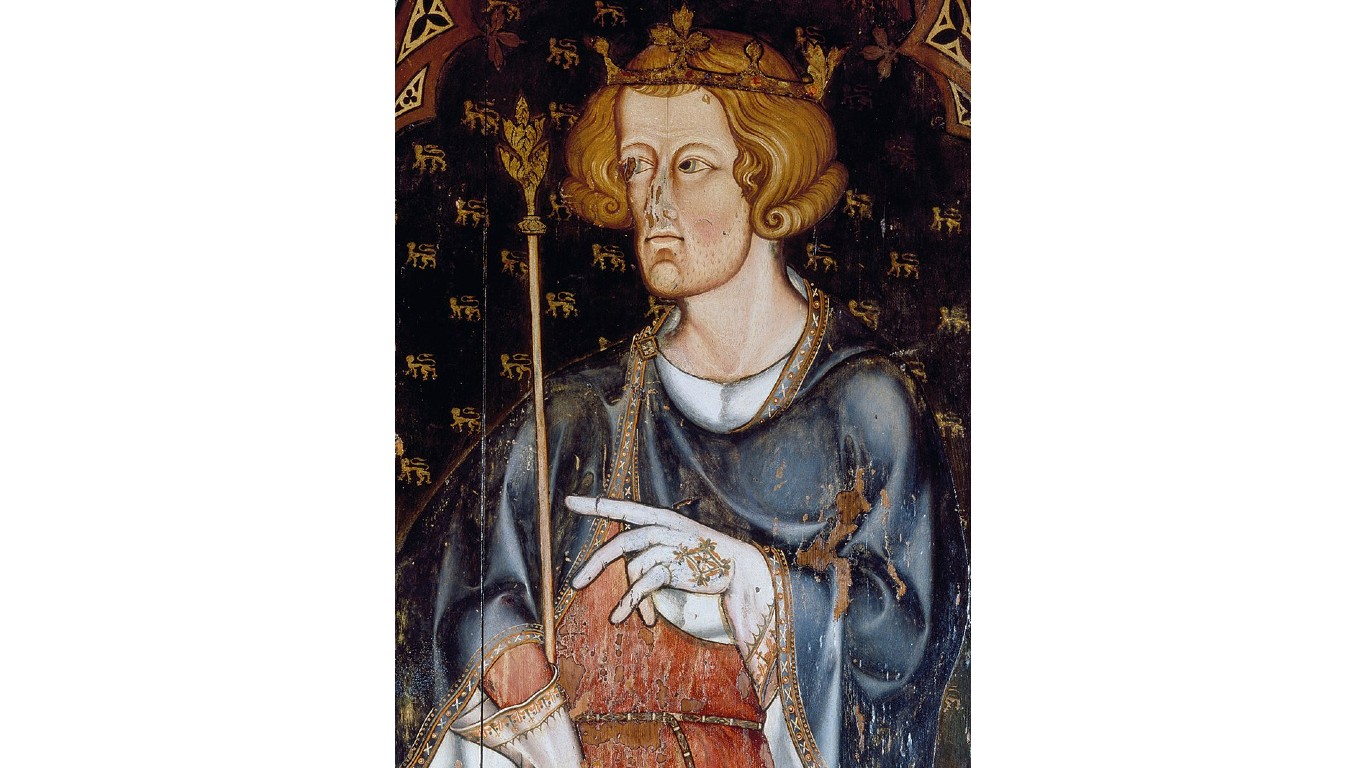
20. Edward I
> Nation: England
> Year(s) of peak military relevance: 1298
The English king conquered Wales and defeated Scotland’s William Wallace at the battle of Falkirk.
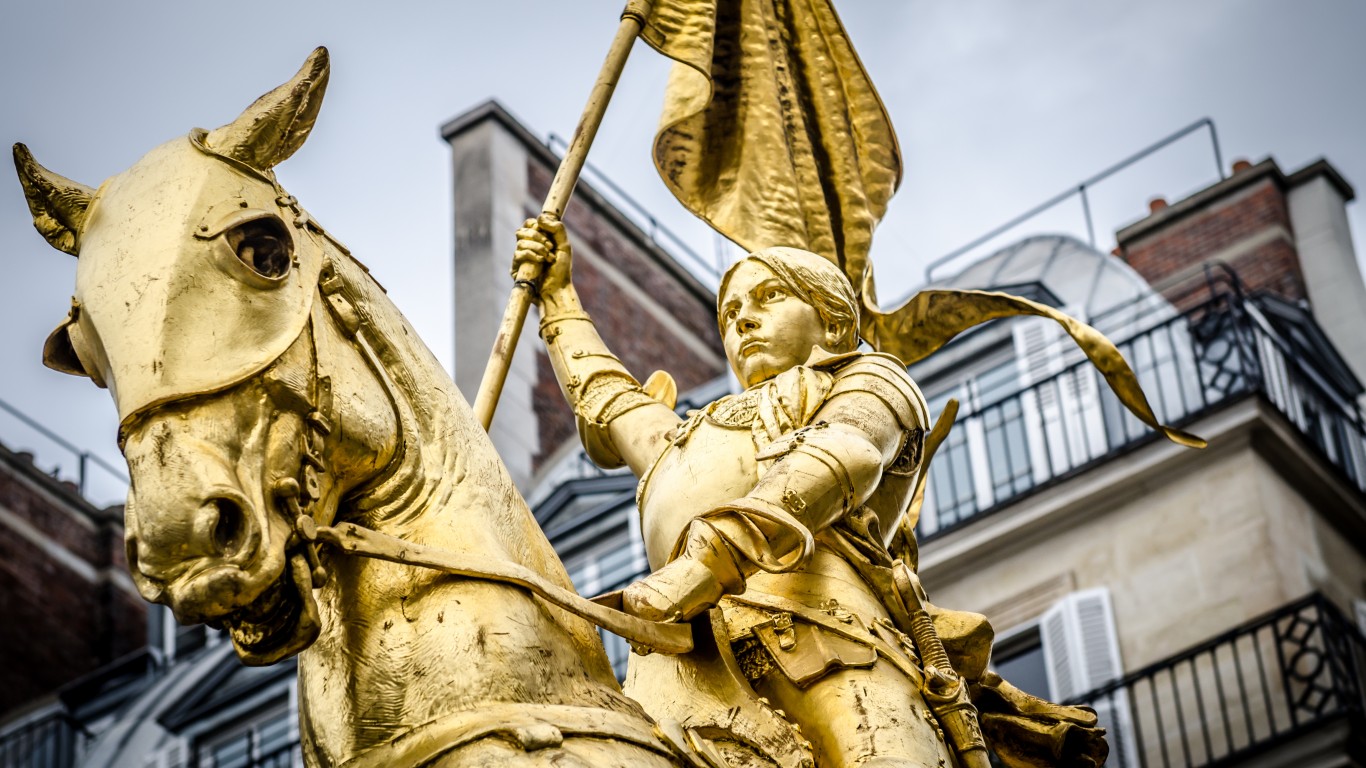
21. Joan of Arc
> Nation: France
> Year(s) of peak military relevance: 1430
Arguably the most famous woman to take up arms for her country, Joan’s vision compelled her to fight the English in the Hundred Years War, commanding forces in more than a dozen engagements, winning many.
[in-text-ad]
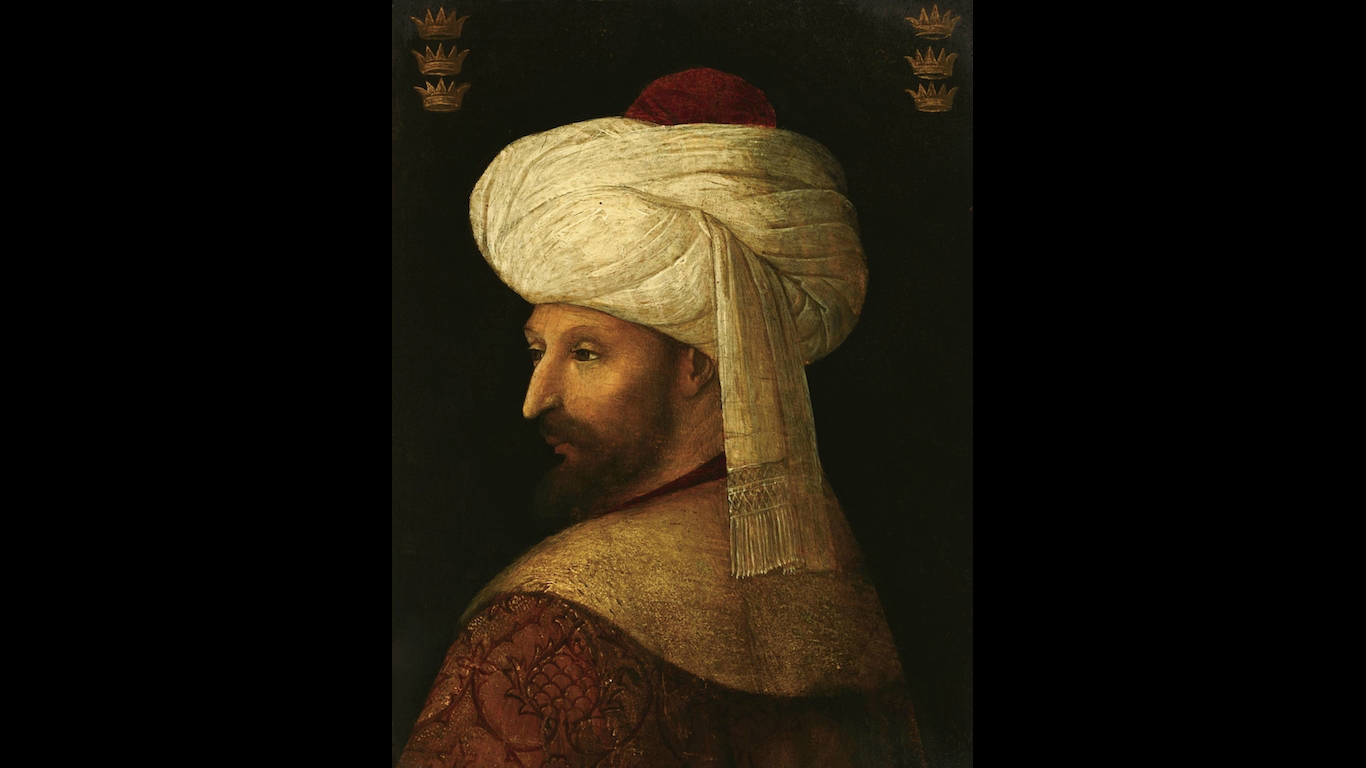
22. Mehmed II
> Nation: Ottoman Empire
> Year(s) of peak military relevance: 1453
The “father of conquest” conquered Constantinople and dismantled the Byzantine Empire.
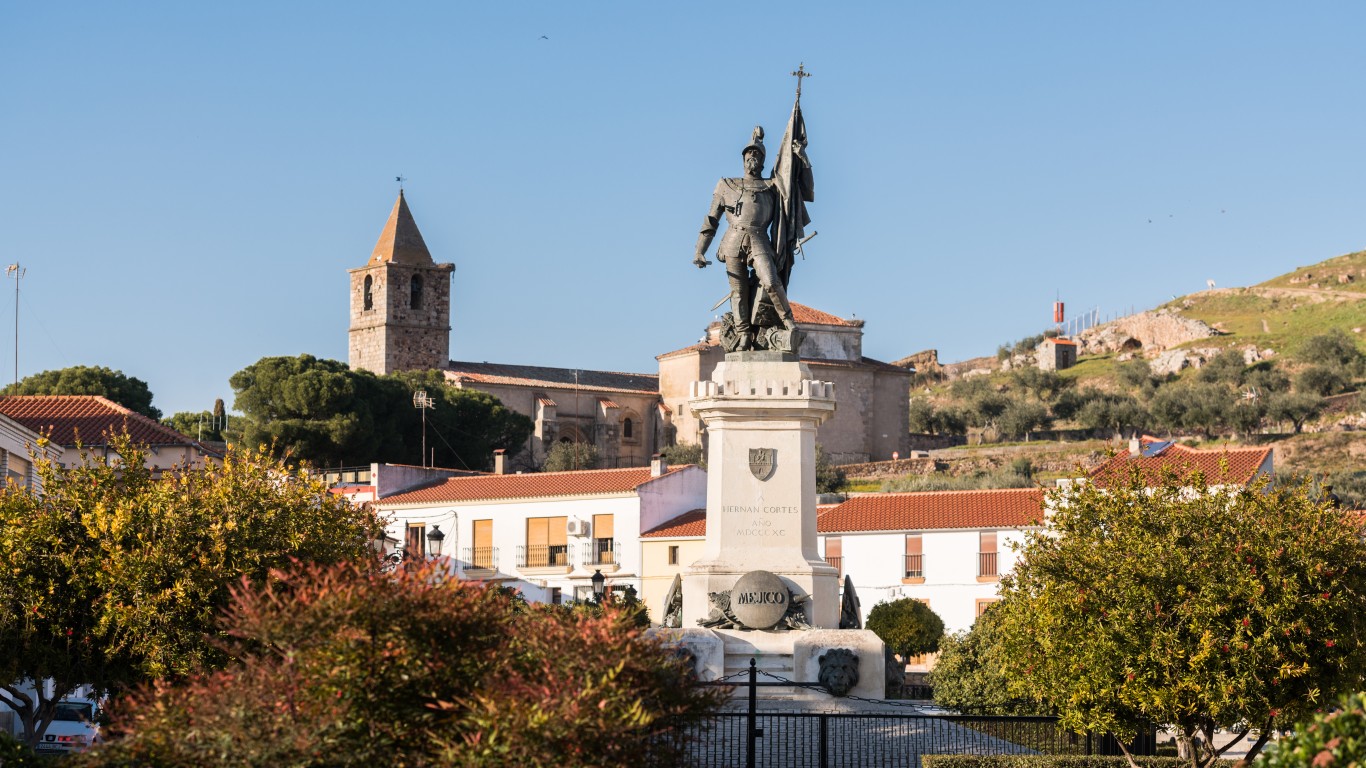
23. Fernan Cortes
> Nation: Spain
> Year(s) of peak military relevance: 1521
Cortes and conquistadors numbering in the hundreds (with the advantage of superior weaponry and a smallpox outbreak) decimated the Aztec empire with warriors in the hundreds of thousands and conquered Mexico.
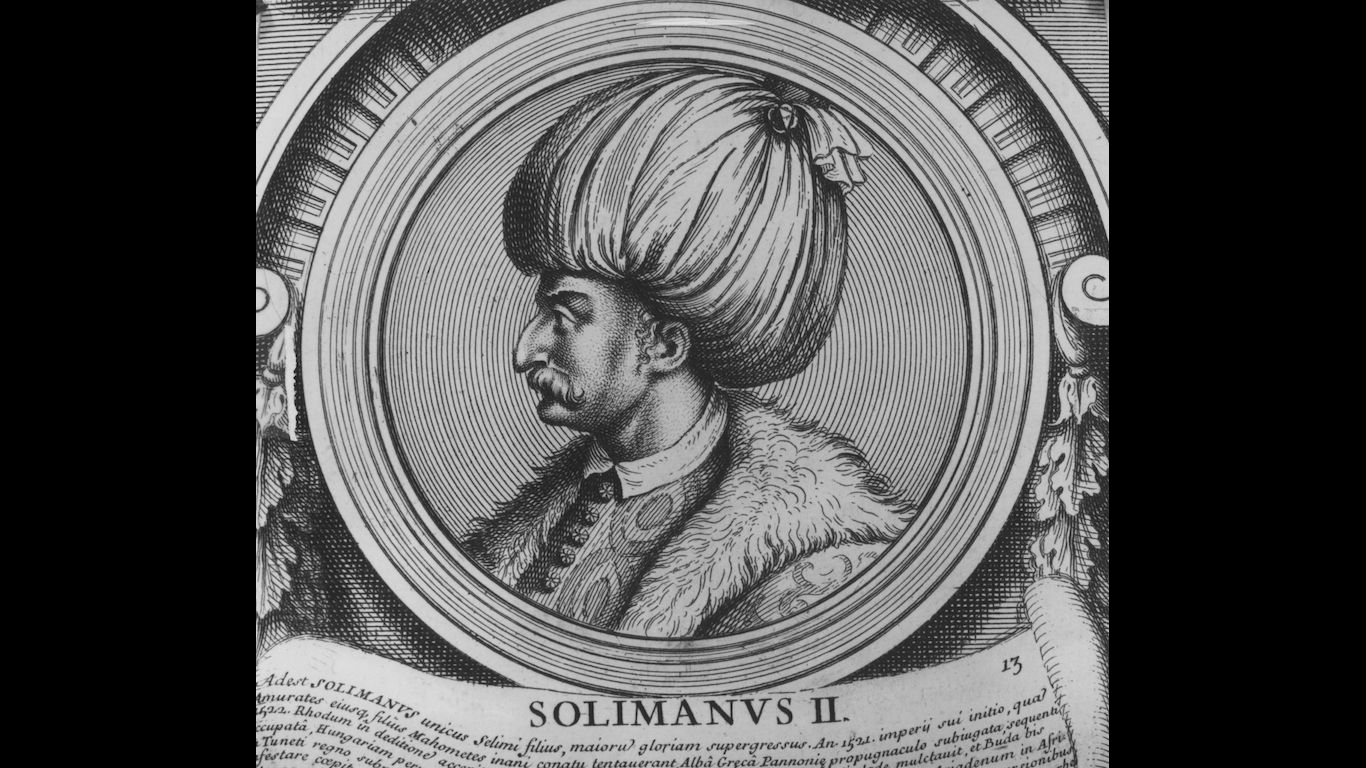
24. Suleiman I
> Nation: Ottoman Empire
> Year(s) of peak military relevance: 1529
Suleiman the Magnificent expanded the borders of the Ottoman Empire to North Africa.
[in-text-ad-2]
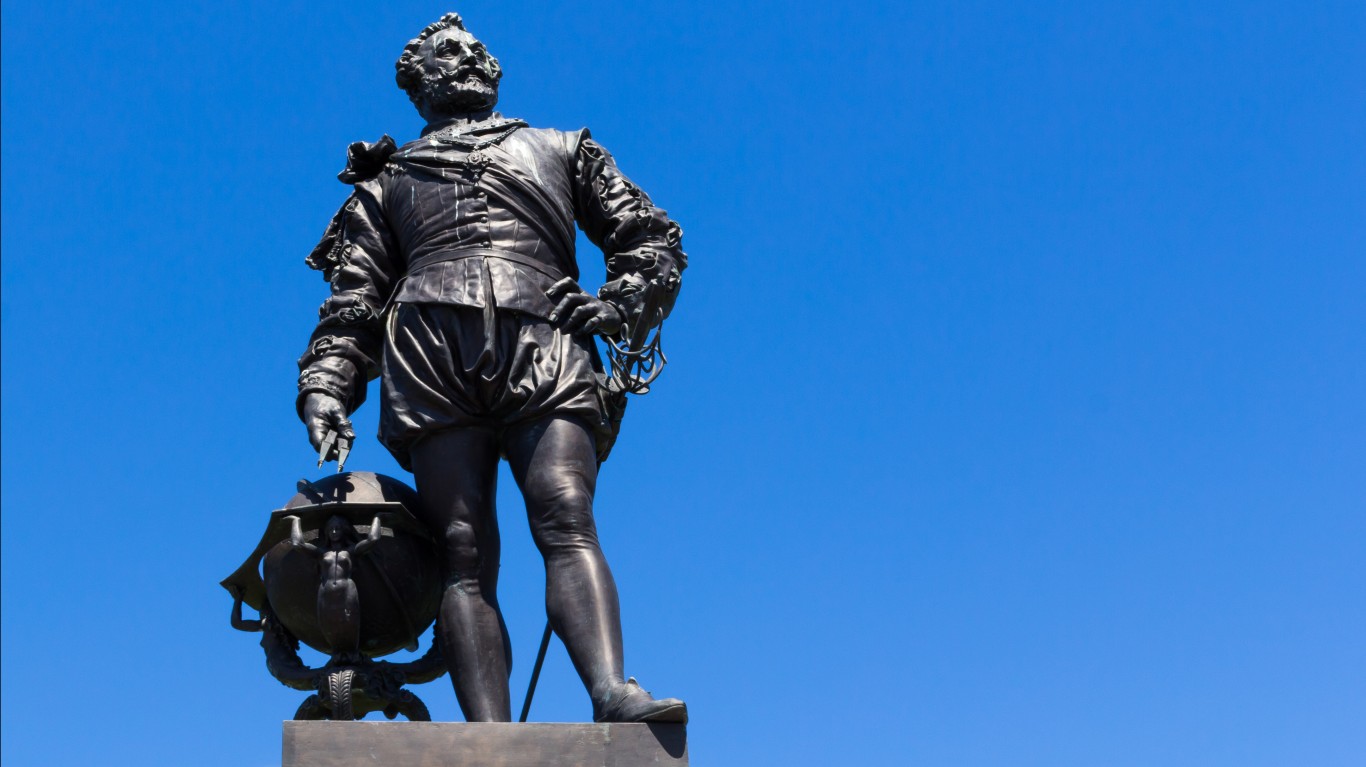
25. Francis Drake
> Nation: Great Britain
> Year(s) of peak military relevance: 1588
Francis Drake helped defeat the Spanish Armada by launching an early attack at Cadiz in 1587 and then participating as second in command in the decisive battle a year later.
26. Ieyasu Tokugawa
> Nation: Japan
> Year(s) of peak military relevance: 1600
The leader won the battle of Sekigahara and unified Japan, becoming the first shogun of the Tokugawa era that would last more than 250 years.
[in-text-ad]
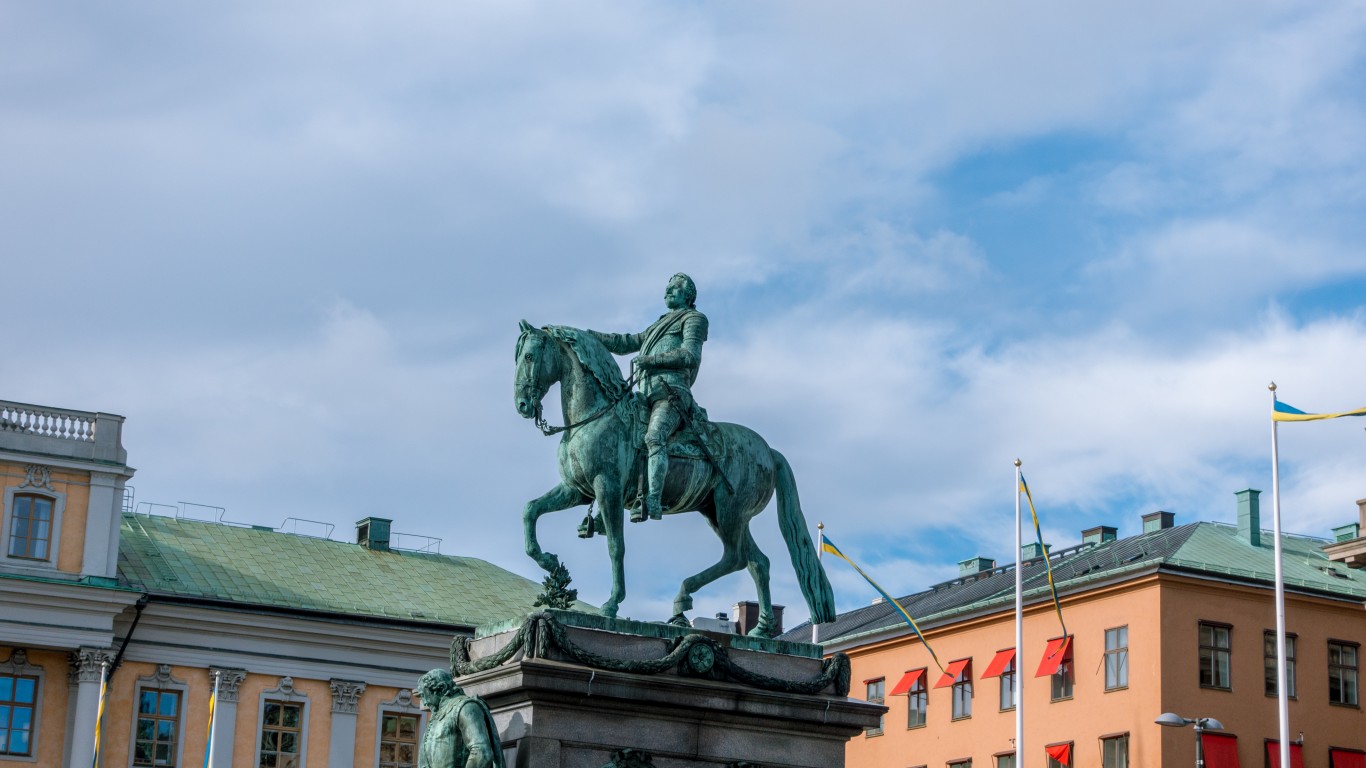
27. Gustavus Adolphus
> Nation: Sweden
> Year(s) of peak military relevance: 1611-1632
The Swede is credited as a key innovator in the development of the modern army.
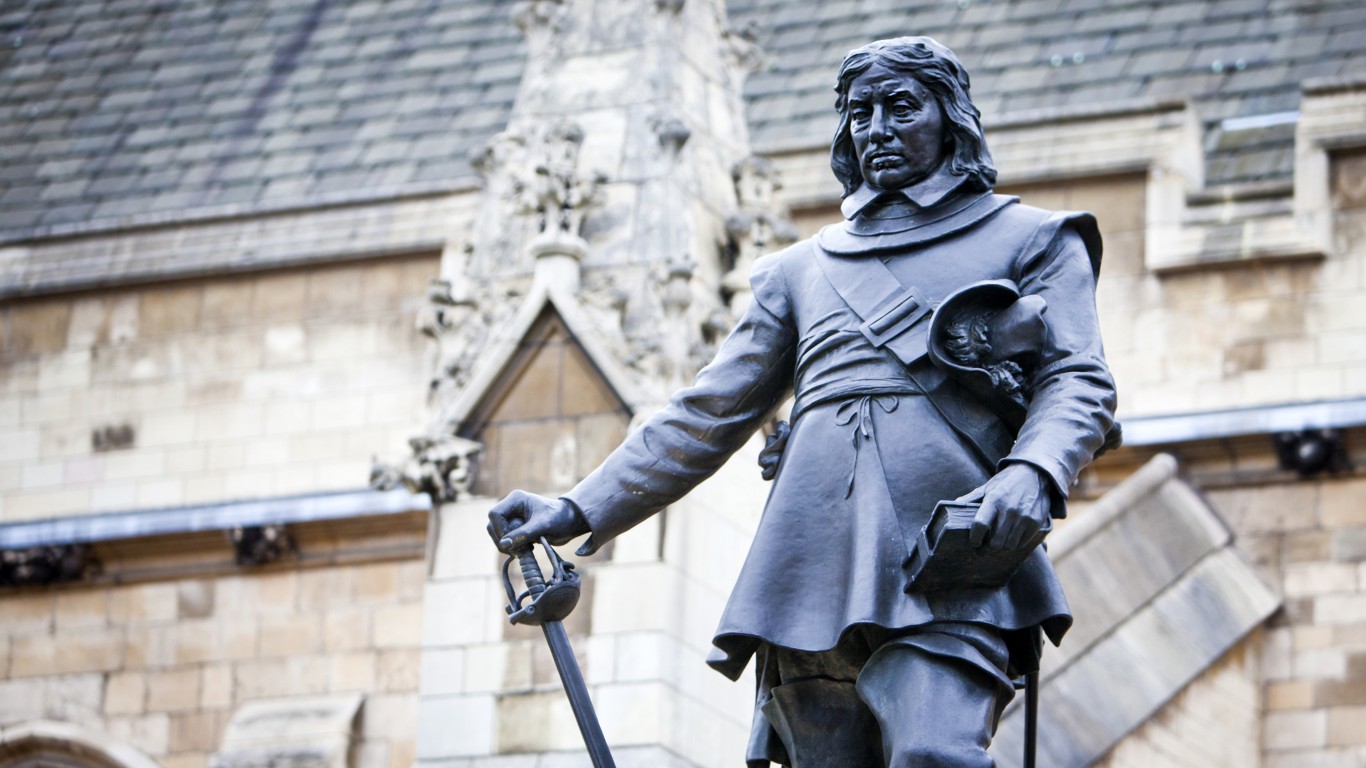
28. Oliver Cromwell
> Nation: England
> Year(s) of peak military relevance: 1645
Cromwell defeated royalist forces with his “ironsides” cavalry, ensuring the existence of England’s parliament.
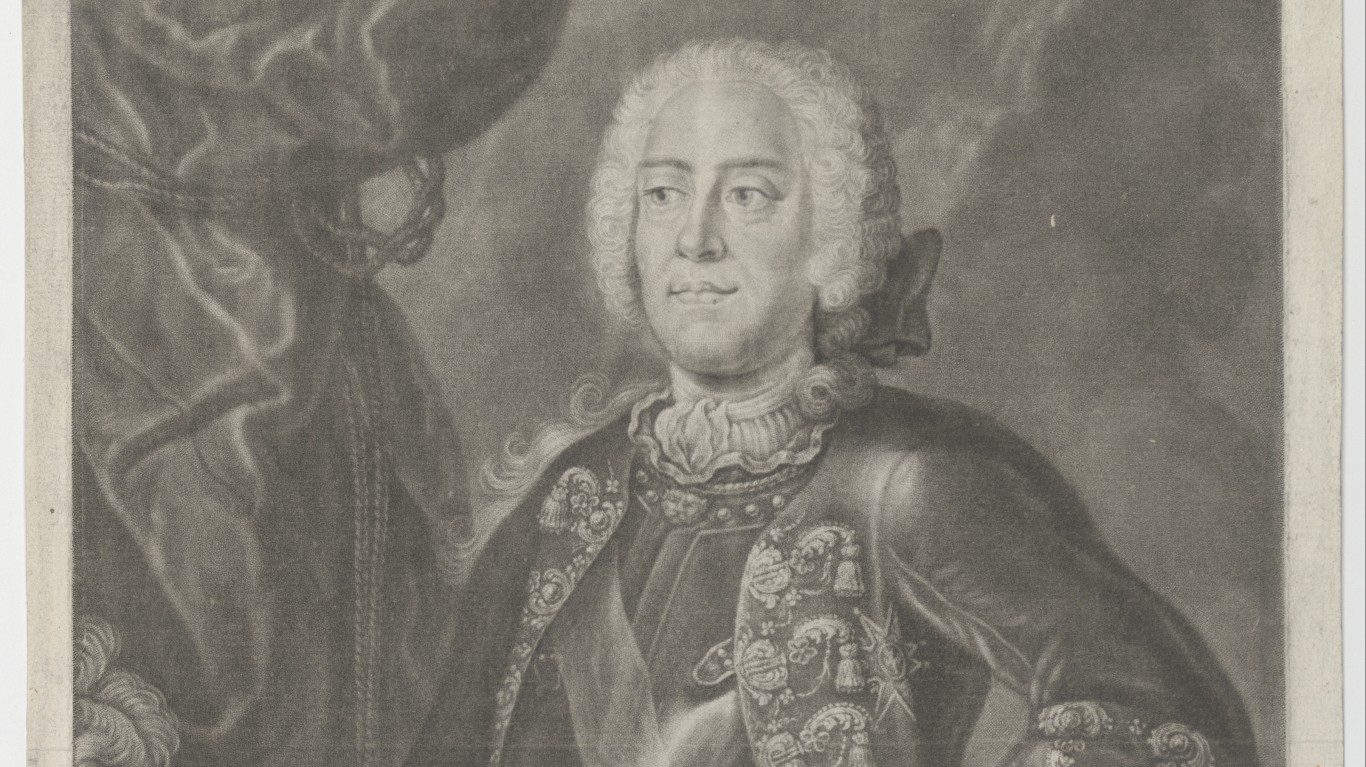
29. Maurice de Saxe
> Nation: France
> Year(s) of peak military relevance: 1745
The Count of Saxony won the Battle of Fontenoy and is credited with innovating a variety of military training and tactics.
[in-text-ad-2]
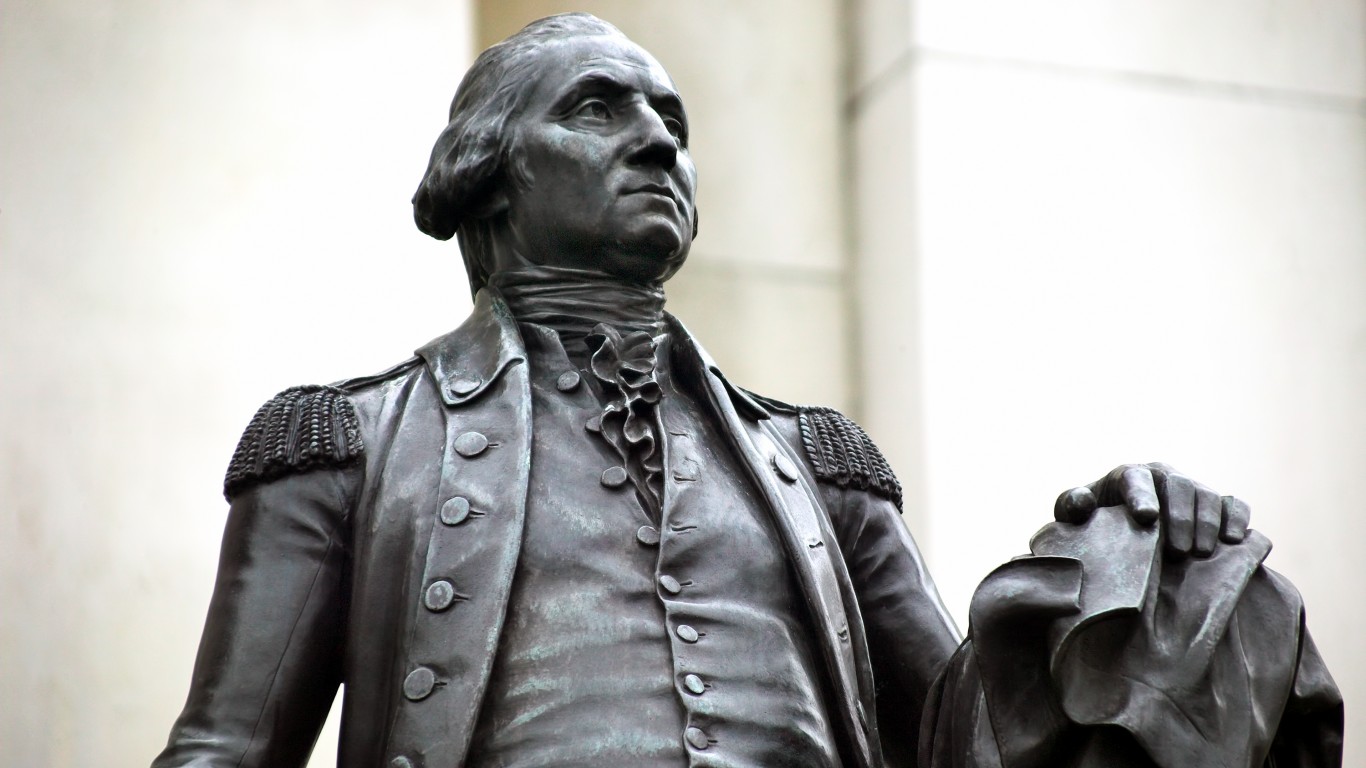
30. George Washington
> Nation: The United States
> Year(s) of peak military relevance: 1781
His guerrilla warfare and key victories, such as at Yorktown, ensured independence and formation of the country, which eventually named him as its first president.
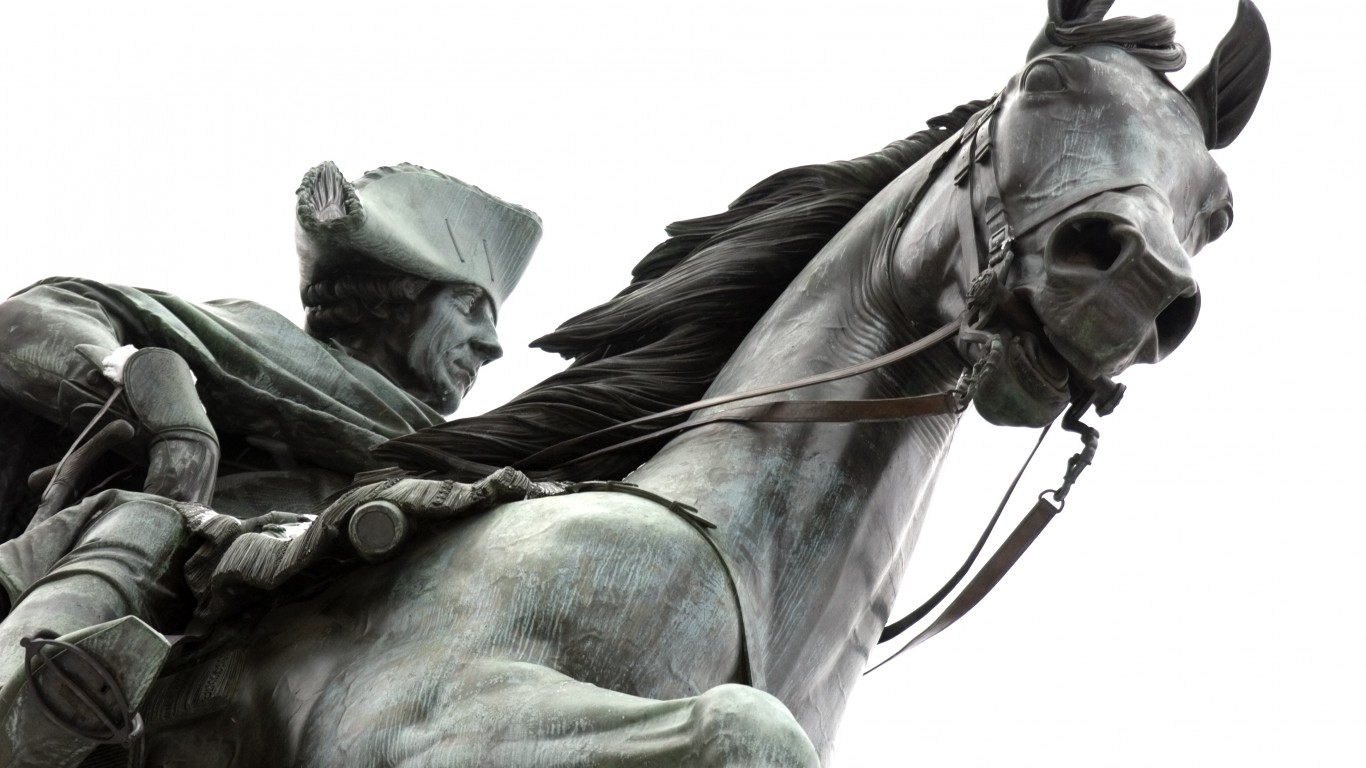
31. Frederick the Great
> Nation: Prussia
> Year(s) of peak military relevance: 1740-1786
Another tactical innovator of the era, Frederick the Great expanded Prussia’s borders.
[in-text-ad]
32. Napoleon
> Nation: France
> Year(s) of peak military relevance: 1799-1815
The famous short-statured military genius came as close as any to conquering the whole of Europe — twice.
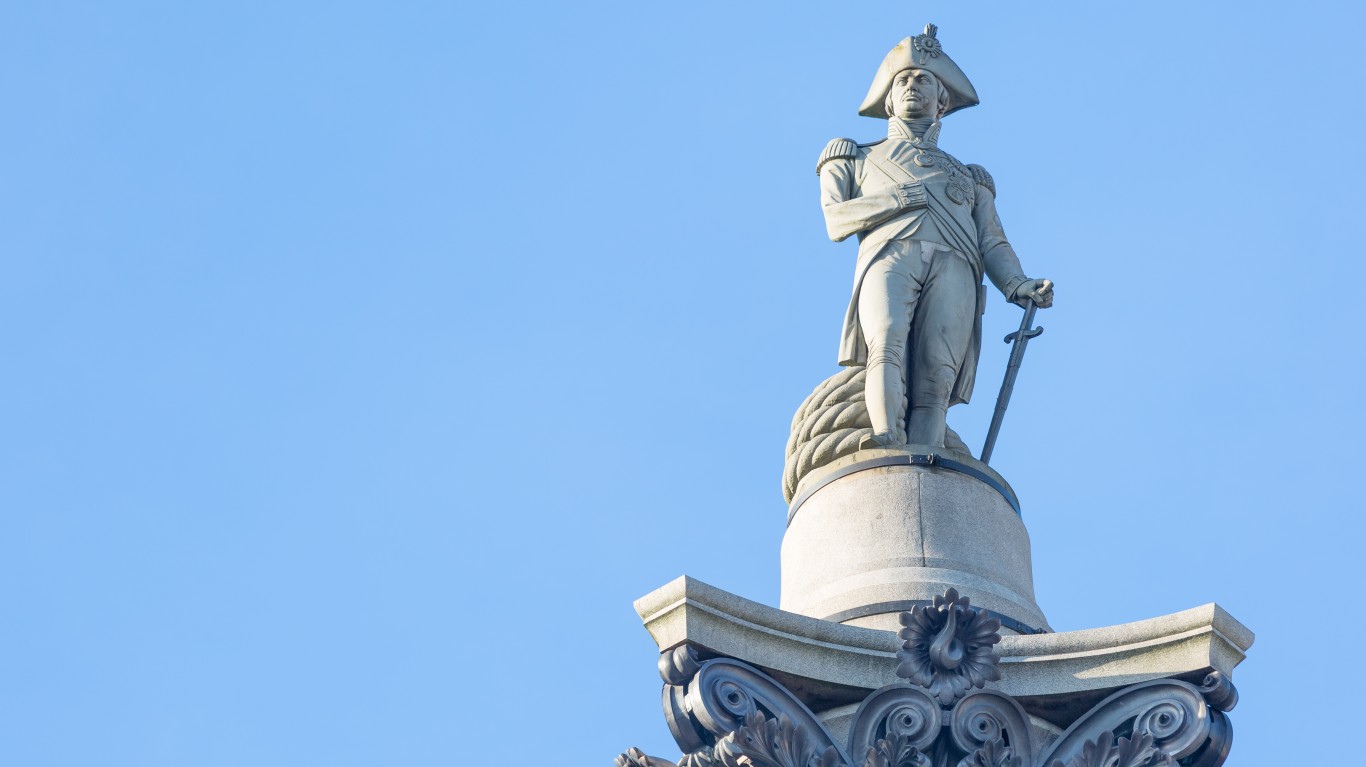
33. Horatio Nelson
> Nation: Britain
> Year(s) of peak military relevance: 1805
In a battle that cost him his life, the British naval legend defeated the Napoleon-aligned French and Spanish forces at the Battle of Trafalgar

34. Mikhail Kutuzov
> Nation: Russia
> Year(s) of peak military relevance: 1812
The Russian field marshal’s victory at the battle of Borodino decimated Napoleon’s forces.
[in-text-ad-2]

35. Arthur Wellesley
> Nation: Great Britain
> Year(s) of peak military relevance: 1815
The Duke of Wellington handed Napoleon his most famous defeat, at Waterloo.
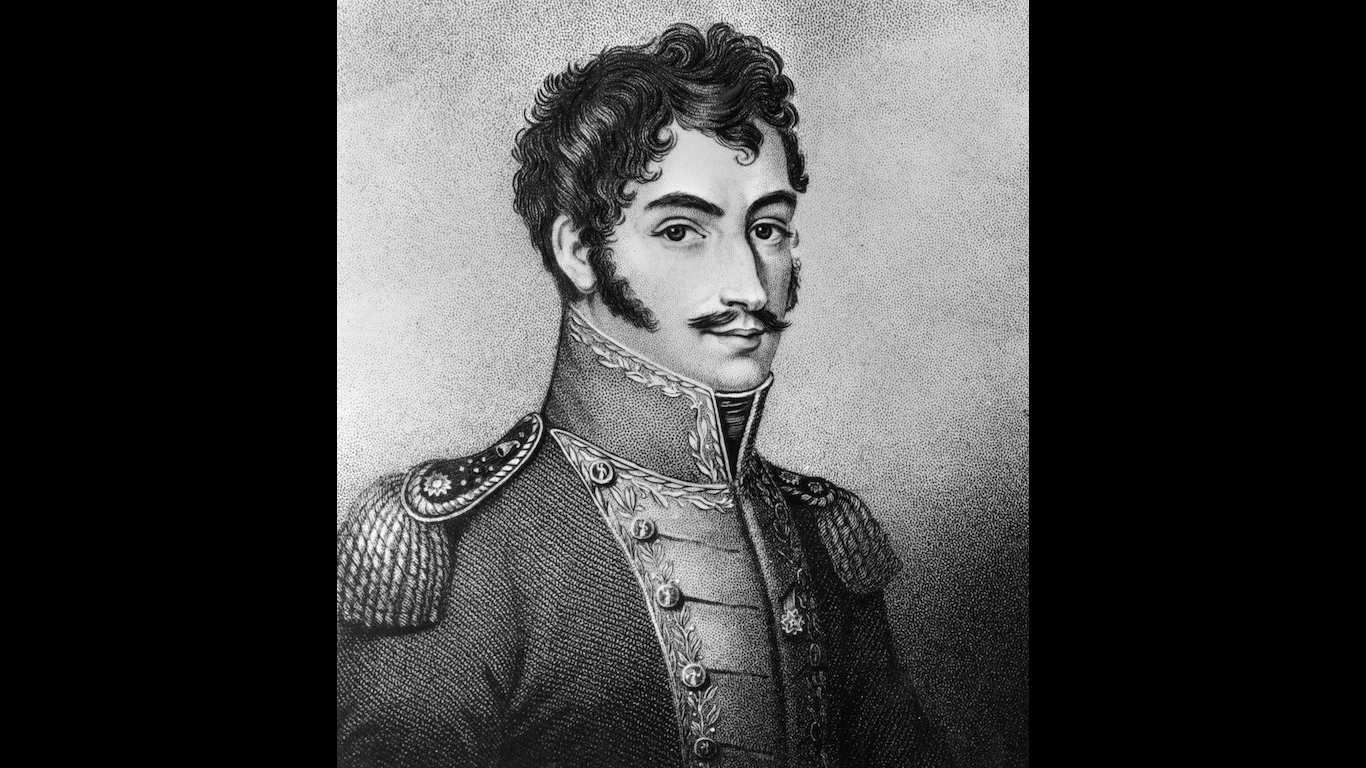
36. Simon Bolivar
> Nation: South America
> Year(s) of peak military relevance: 1821
Simon Bolivar freed vast lands by way of revolution from Spanish rule. These lands would become more than half a dozen South American countries.
[in-text-ad]
37. Shaka Zulu
> Nation: Zulu Empire
> Year(s) of peak military relevance: 1828
A military genius whose innovations in army mobility, training, and weapons made the Zulu army a formidable force.
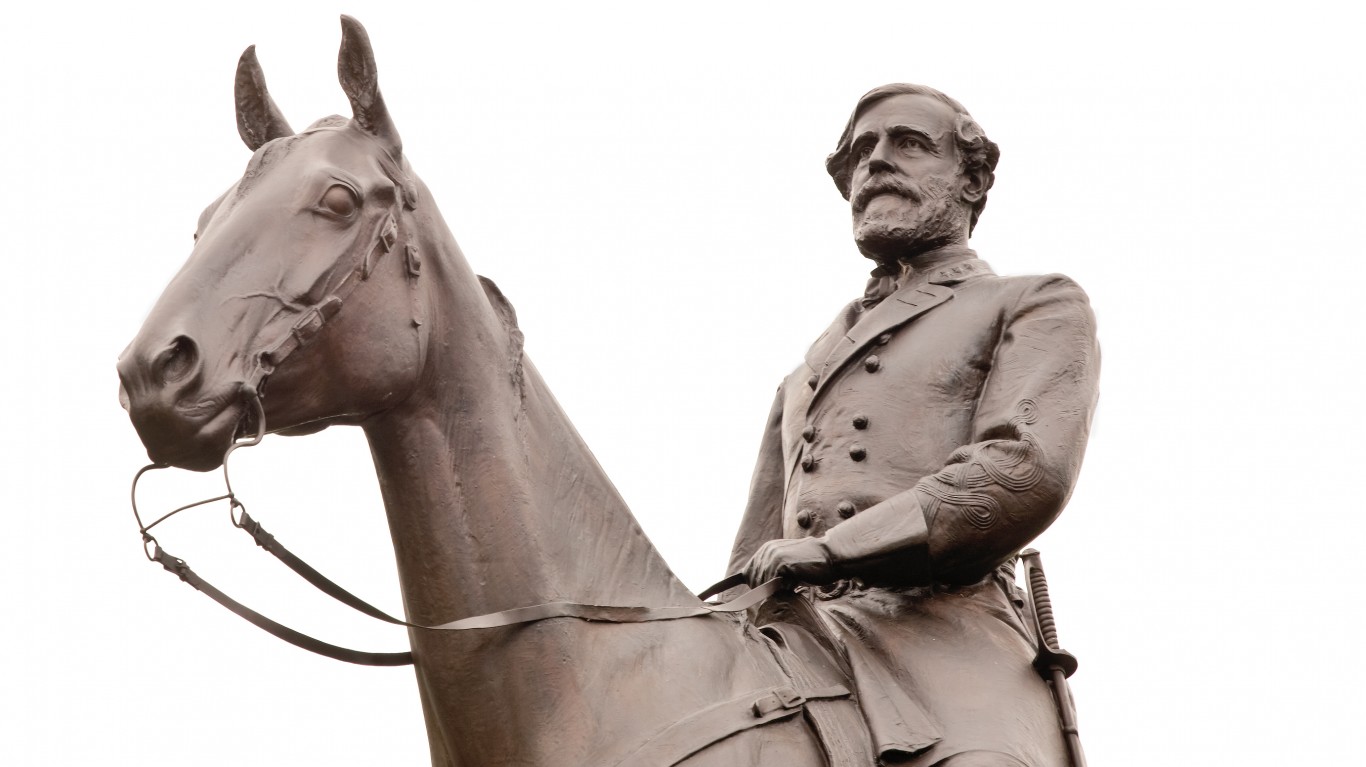
38. Robert E. Lee
> Nation: Confederate States of America
> Year(s) of peak military relevance: 1863
The brilliant commander who gave the outnumbered Confederacy a chance is still an icon throughout the South
39. Thomas “Stonewall” Jackson
> Nation: Confederate States of America
> Year(s) of peak military relevance: 1863
Jackson was responsible for one of the most decisive Confederate victories at Chancellorsville. His death just two years into the war, believed to be the result of accidental friendly fire, dealt the Confederacy a grievous blow.
[in-text-ad-2]
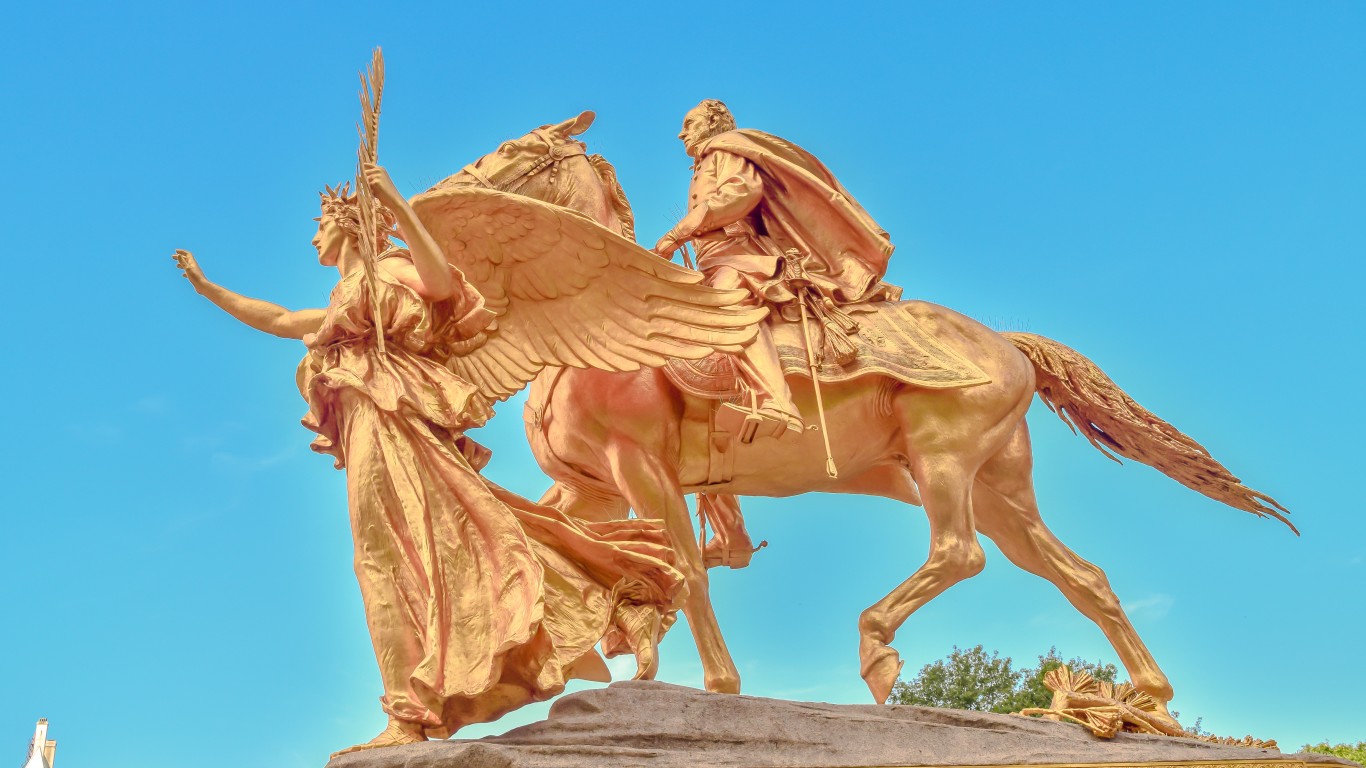
40. William T. Sherman
> Nation: The United States
> Year(s) of peak military relevance: 1864
In his famed march to the sea, Sherman led a campaign of “total war,” capturing Atlanta and dealing a series of catastrophic blows to the Confederacy.
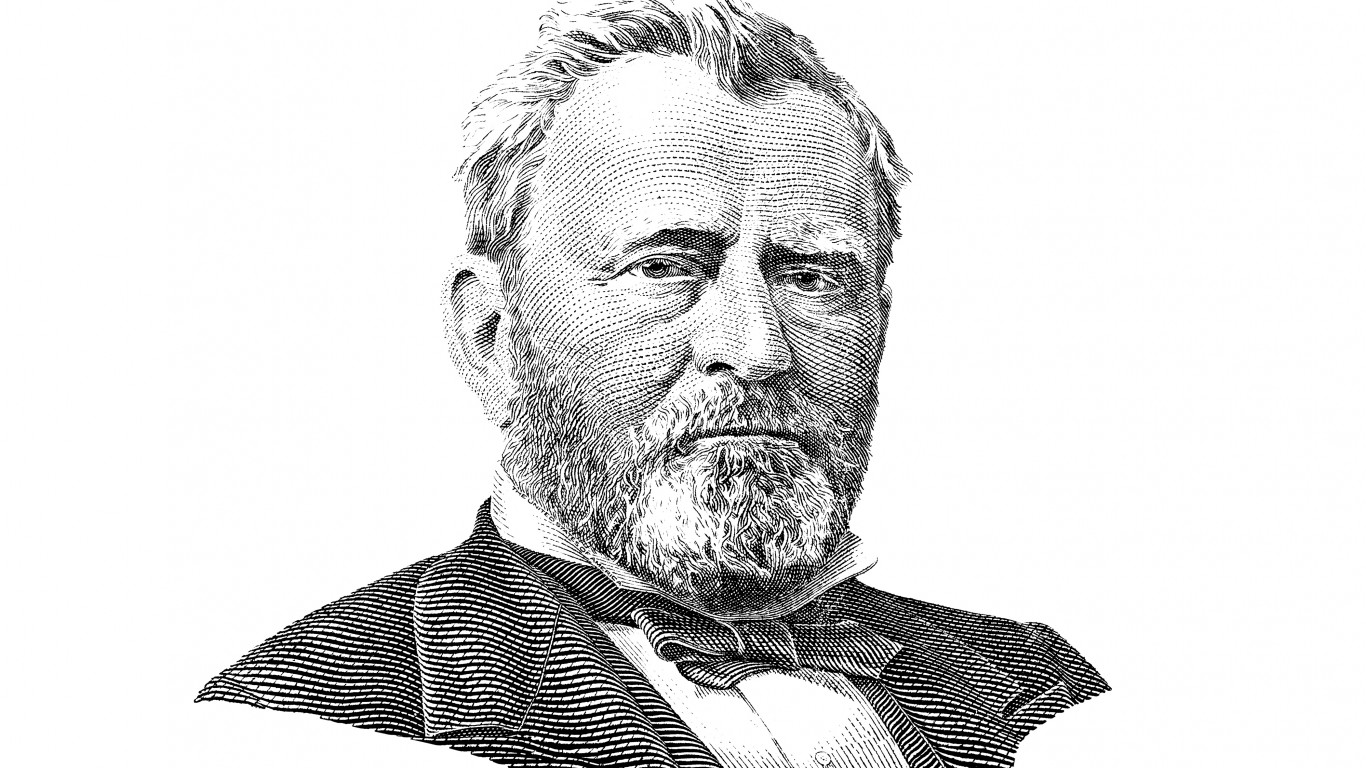
41. Ulysses S. Grant
> Nation: The United States
> Year(s) of peak military relevance: 1862-1865
Grant’s success at Chattanooga, Shiloh, Vicksburg, and other places solidified him as the right choice to lead the Union army and eventually led to his election as the 18th U.S. president.
[in-text-ad]
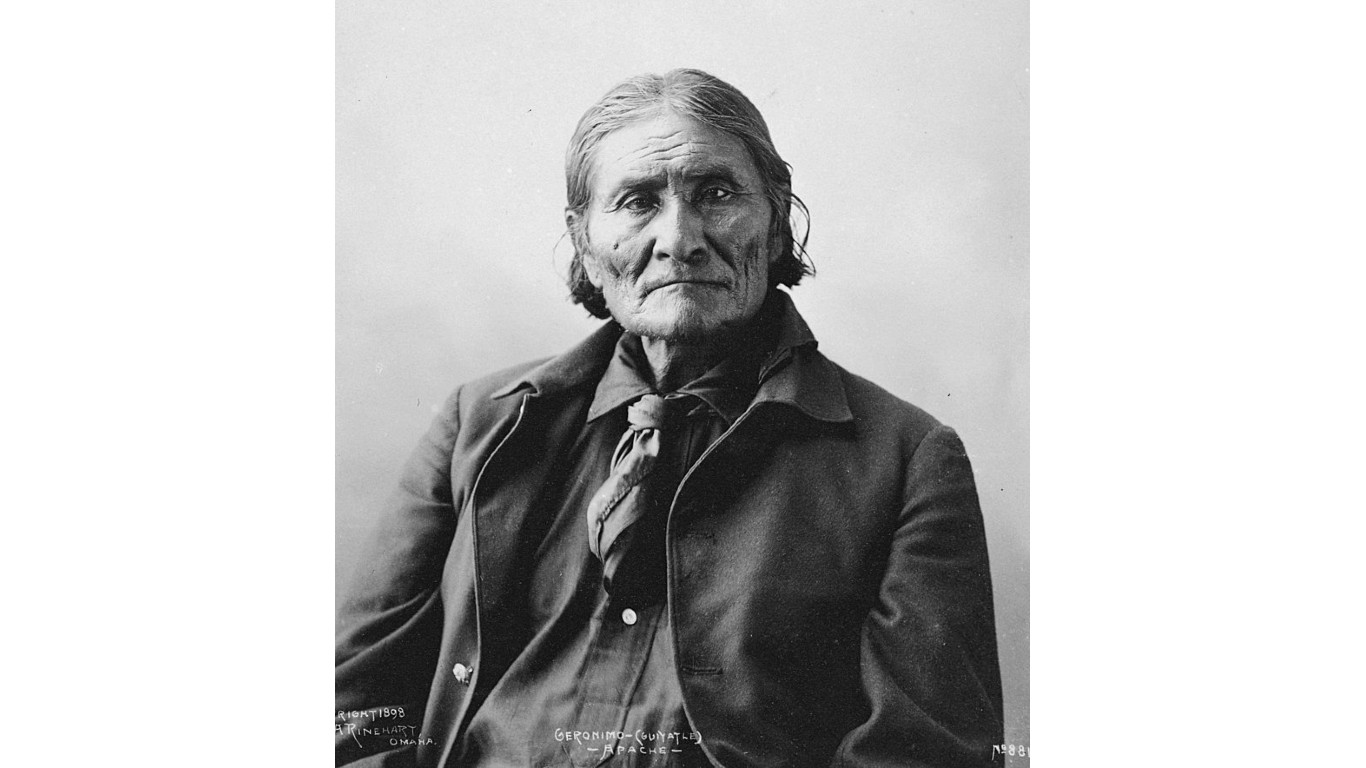
42. Geronimo
> Nation: Chiricahua Apache
> Year(s) of peak military relevance: 1886
Geronimo’s use of guerrilla tactics helped the legendary leader stay one step ahead of the U.S. army for more than two decades.
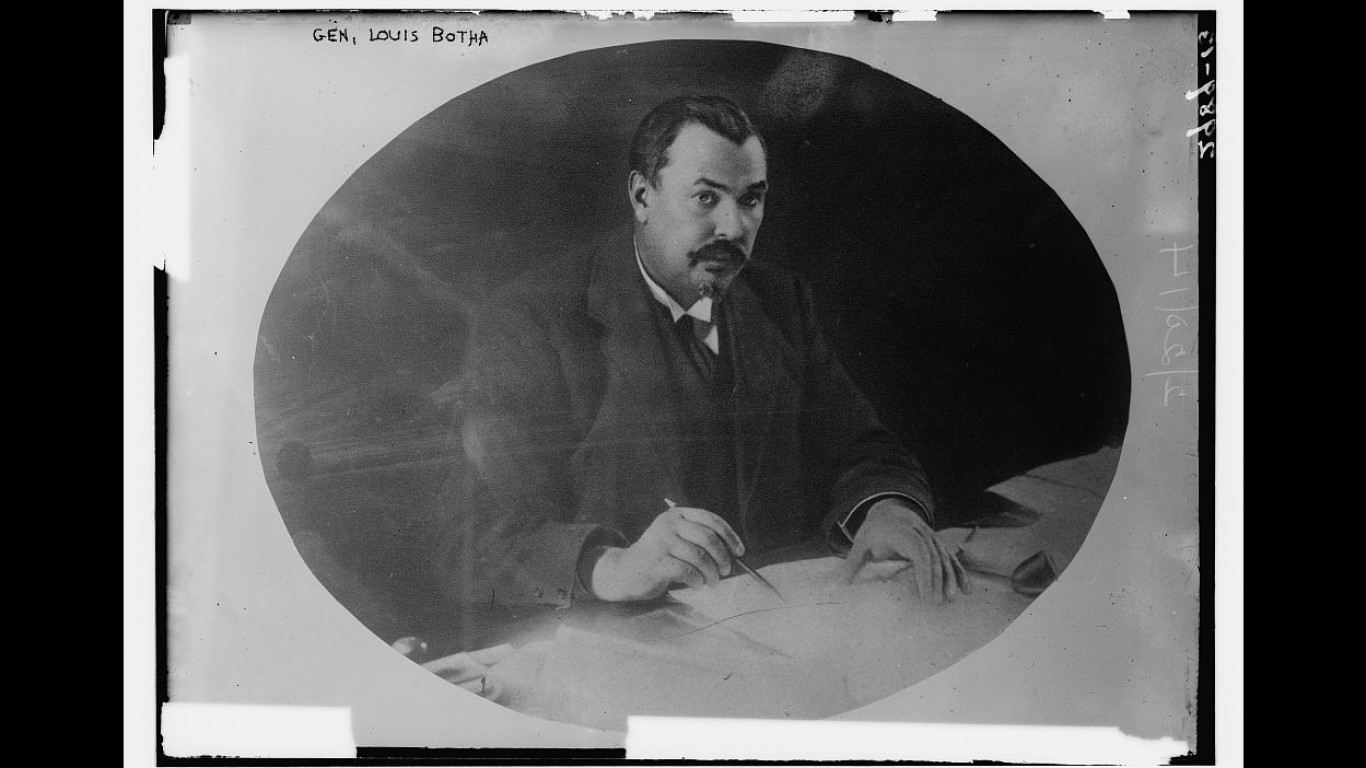
43. Louis Botha
> Nation: Boer Republic
> Year(s) of peak military relevance: 1900
Despite being heavily outnumbered, Louis Botha won upset victories against the British at Colenso and Spion Kop.
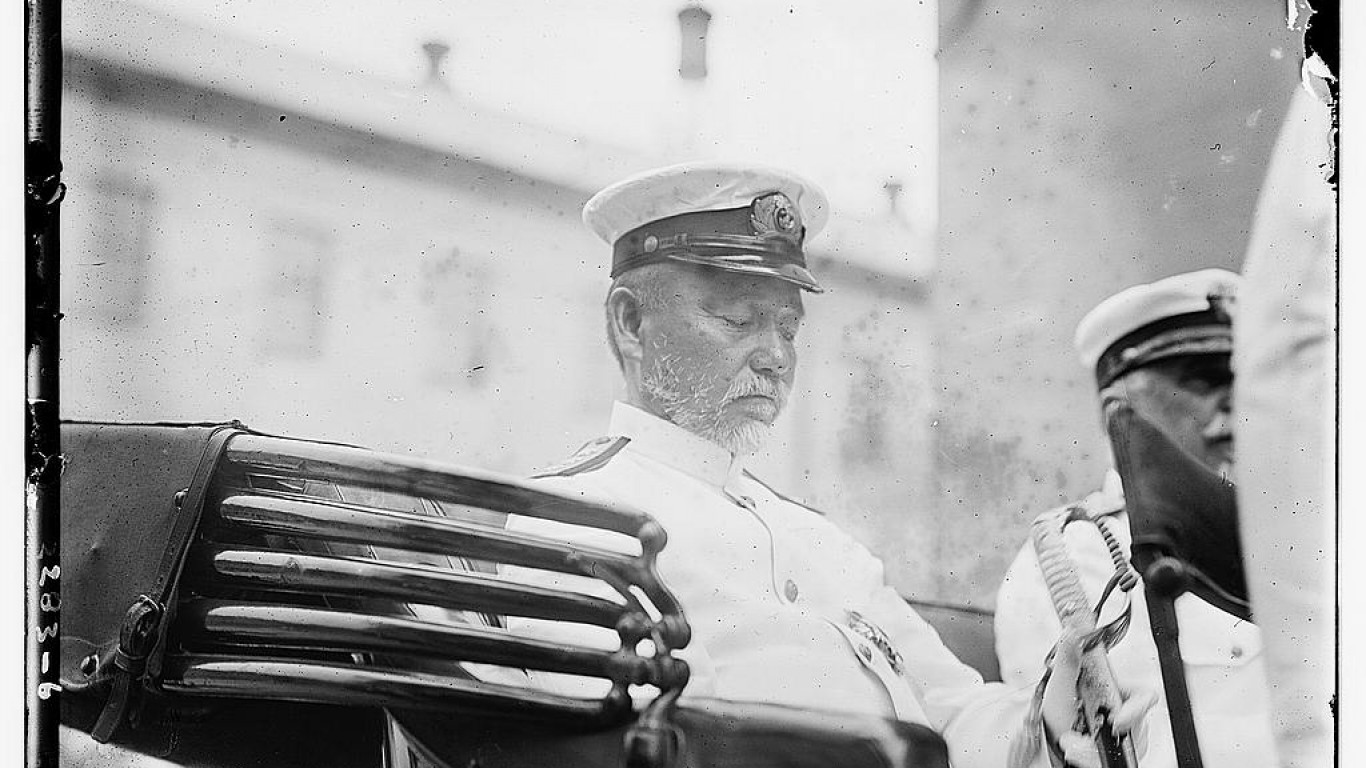
44. Heihachiro Togo
> Nation: Japan
> Year(s) of peak military relevance: 1905
Togo defeated the Russian fleet at the Battle of Tsushima during the Russo-Japanese War.
[in-text-ad-2]
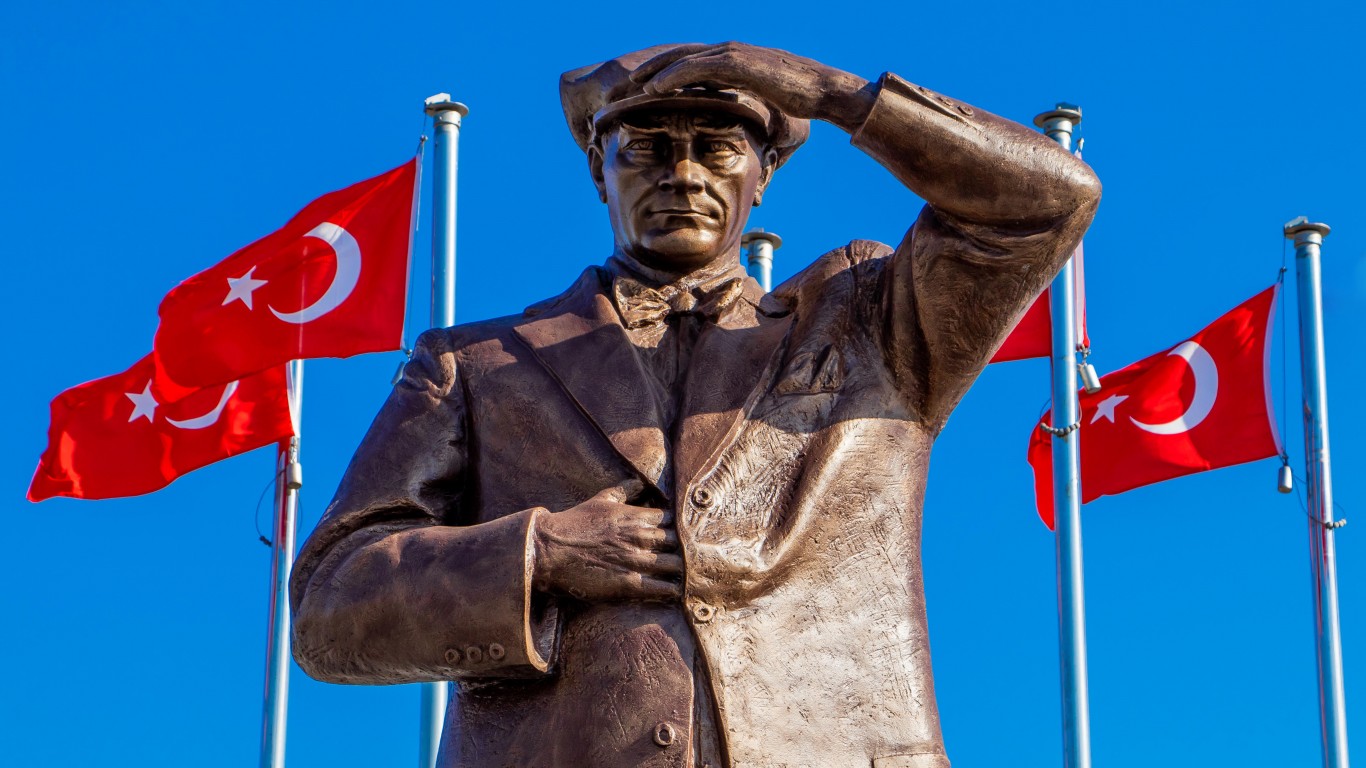
45. Mustafa Ataturk
> Nation: Ottoman Empire
> Year(s) of peak military relevance: 1915
The founder of modern Turkey repelled the British invasion of Gallipoli and went on to lead the fight for Turkish independence, becoming its first president.
46. Paul von Hindenburg
> Nation: Germany
> Year(s) of peak military relevance: 1918
The German commander of the Eastern Front during World War I, von Hindenburg won a decisive victory at the Battle of Tannenberg against a much larger Russian force
[in-text-ad]
47. T.E. Lawrence
> Nation: Great Britain
> Year(s) of peak military relevance: 1918
The subject of the film “Lawrence of Arabia,” T.E. Lawrence led the Arab revolt that was instrumental in the defeat of Turkey during World War I.
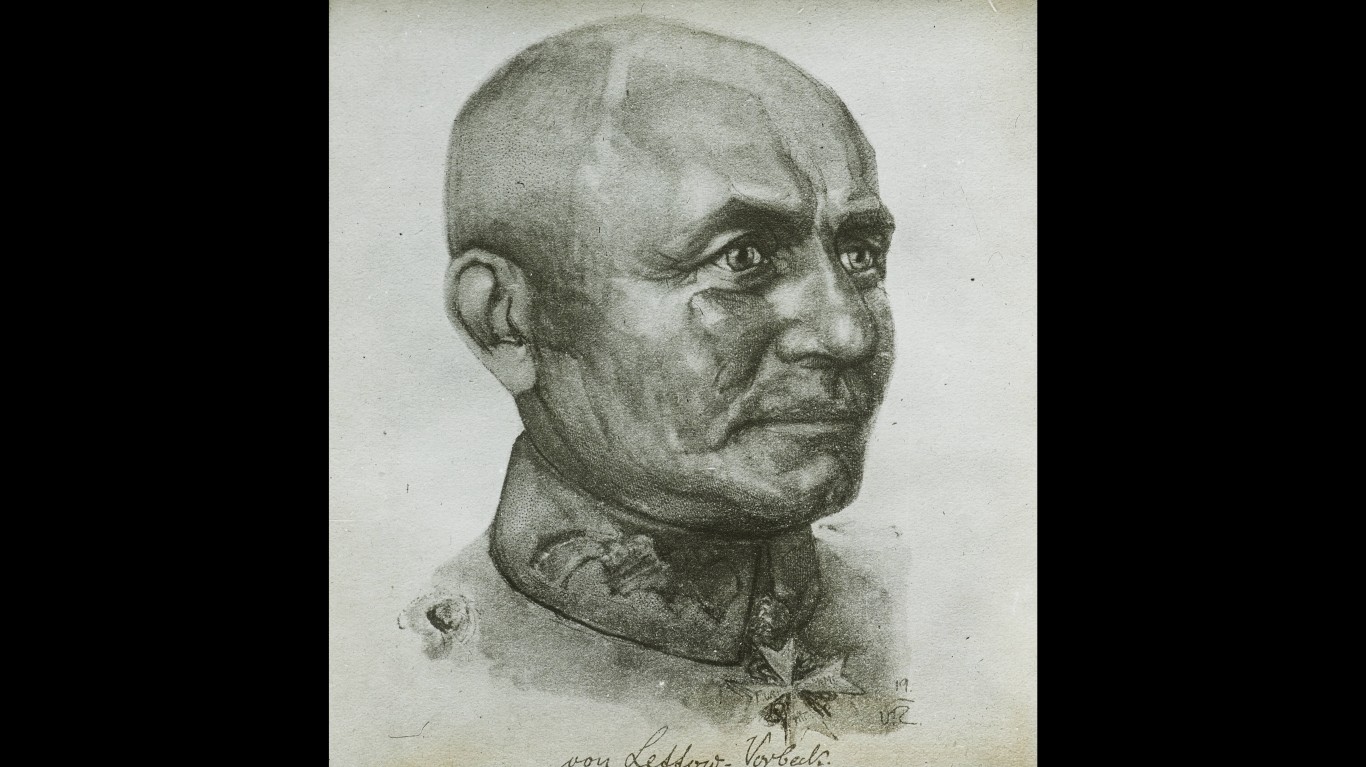
48. Paul von Lettow-Vorbeck
> Nation: Germany
> Year(s) of peak military relevance: 1914-1918
In East Africa, the German commander used guerrilla tactics to frustrate an army of 100,000 with only 15,000 troops.
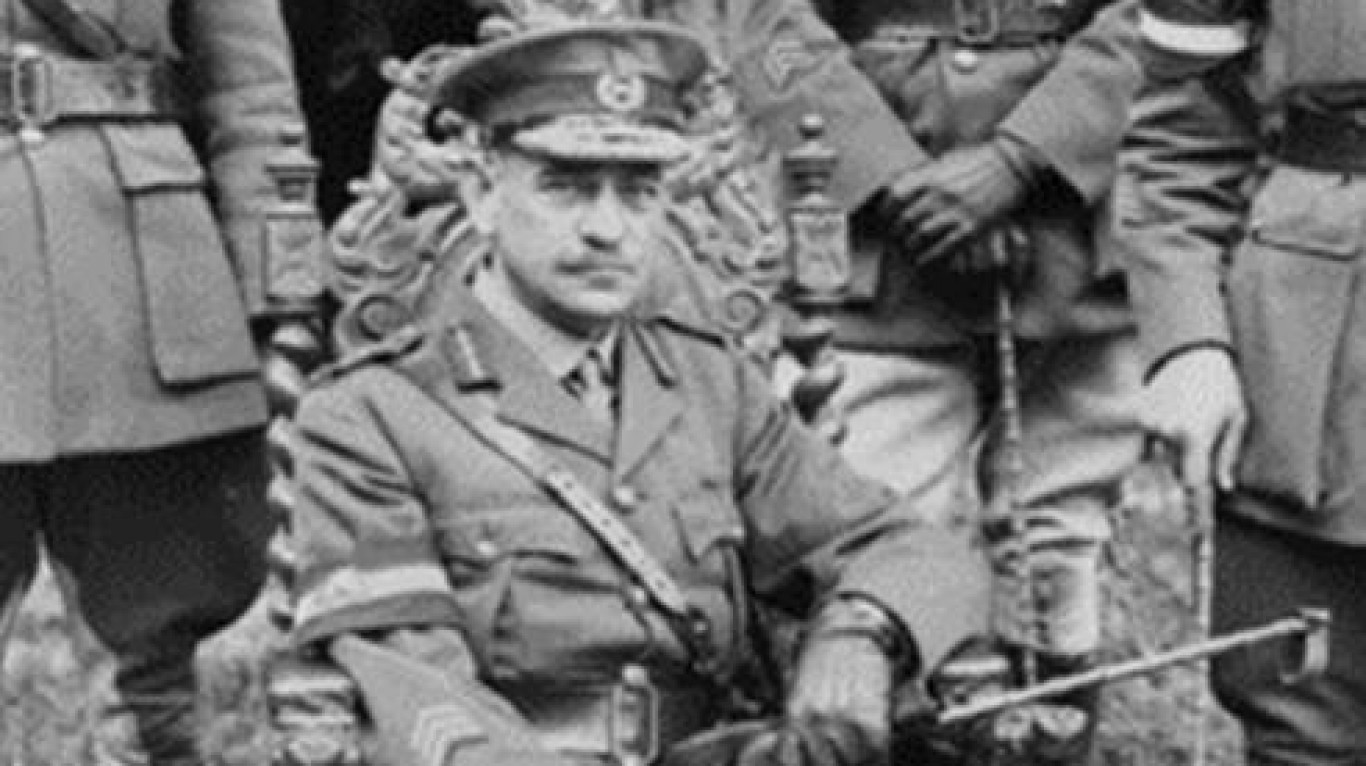
49. John Monash
> Nation: Australia
> Year(s) of peak military relevance: 1916-1918
Considered by many to be the best general on the Western Front during World War I and at the time of the cutting edge of military strategy, he opted to abandon outdated British tactics, utilizing all of the weapons at his disposal.
[in-text-ad-2]
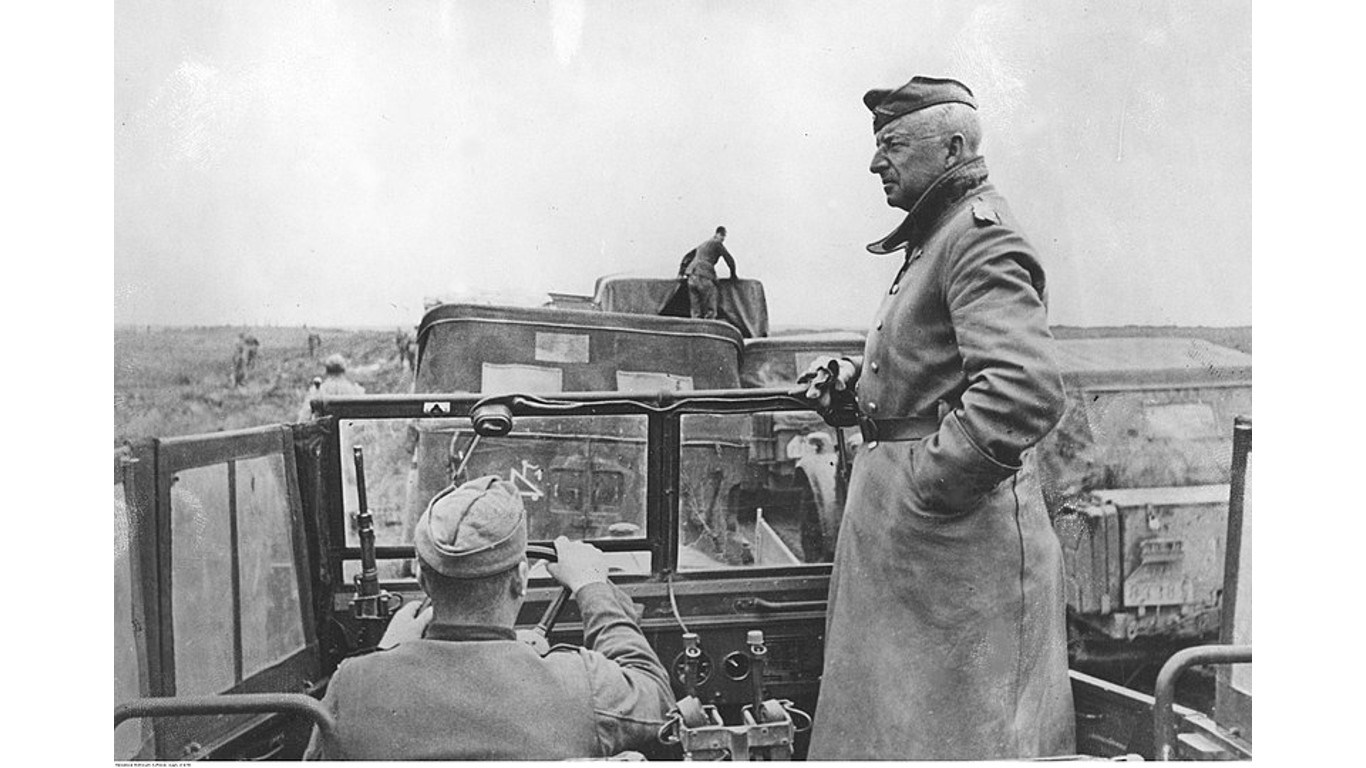
50. Erich von Manstein
> Nation: Germany
> Year(s) of peak military relevance: 1940
Von Manstein was the architect of Germany’s stunningly quick takeover of France, which earned him promotion to general. He did not fare quite so well at the battle of Stalingrad.
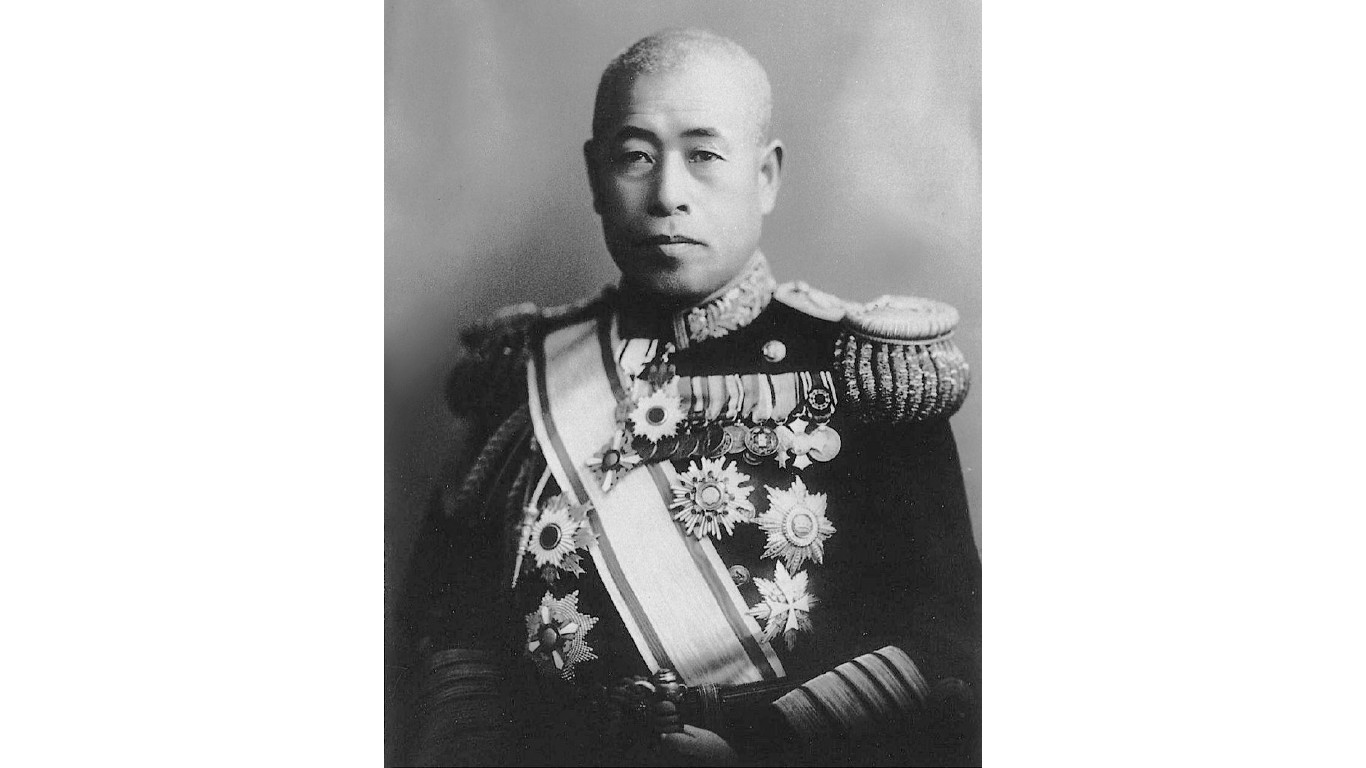
51. Isoruku Yamamoto
> Nation: Japan
> Year(s) of peak military relevance: 1941
Yamamoto was the mind behind the attack on Pearl Harbor. He recognized the fact that battleships were the way of the past and carrier-based aircraft the way of the future.
[in-text-ad]
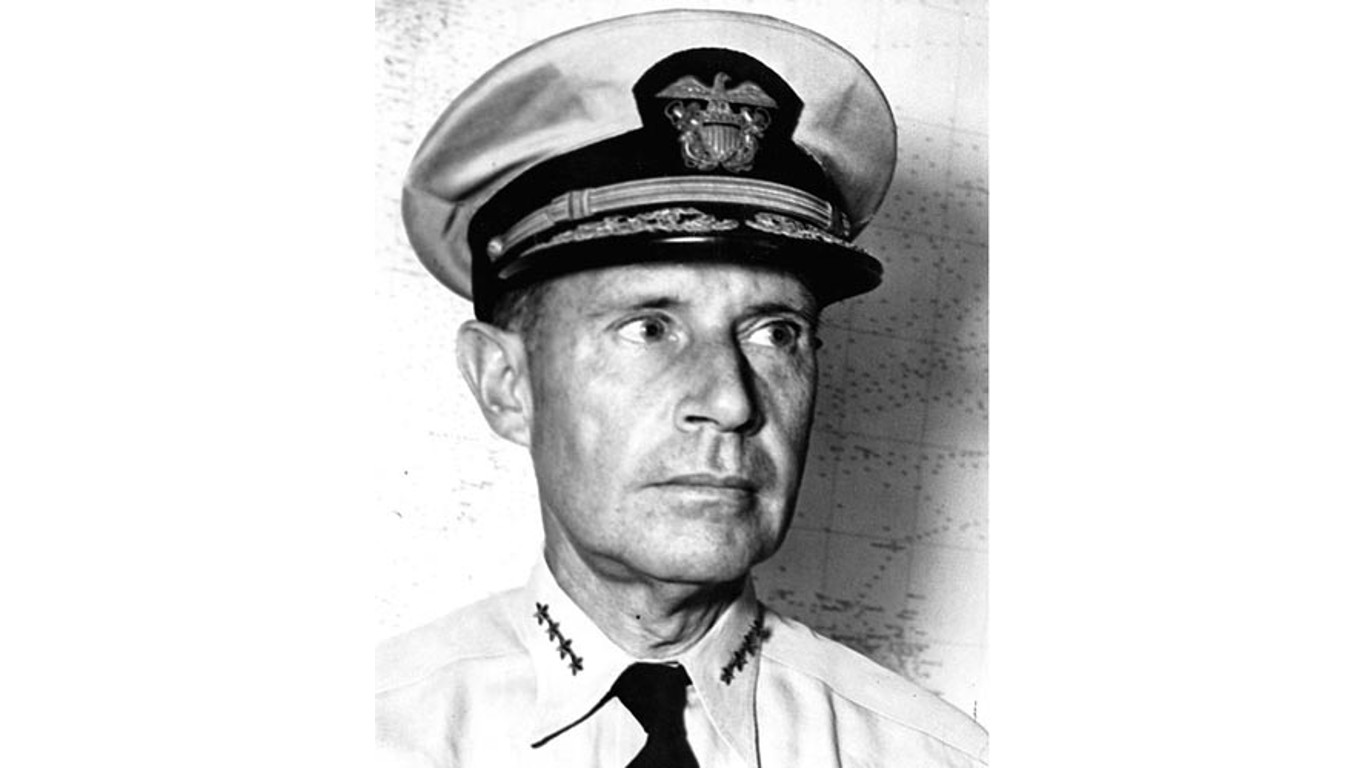
52. Raymond Spruance
> Nation: The United States
> Year(s) of peak military relevance: 1942
Spruance led the American Navy to victory at the battle of Midway, sinking four Japanese carriers and turning the tide of War in the Pacific.
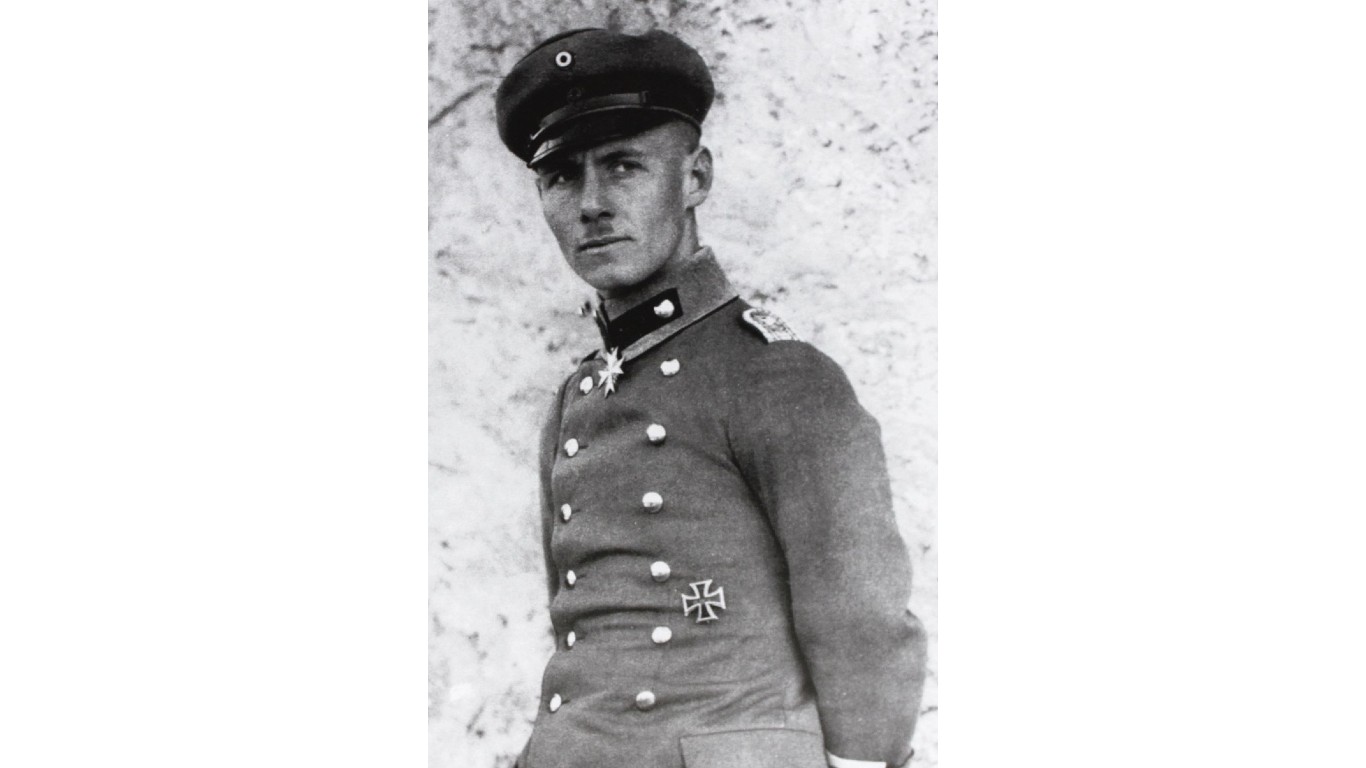
53. Erwin Rommel
> Nation: Germany
> Year(s) of peak military relevance: 1941-1943
The “desert fox” proved one of the most formidable Nazi commanders, using tanks to hand the Allies numerous defeats in North Africa.
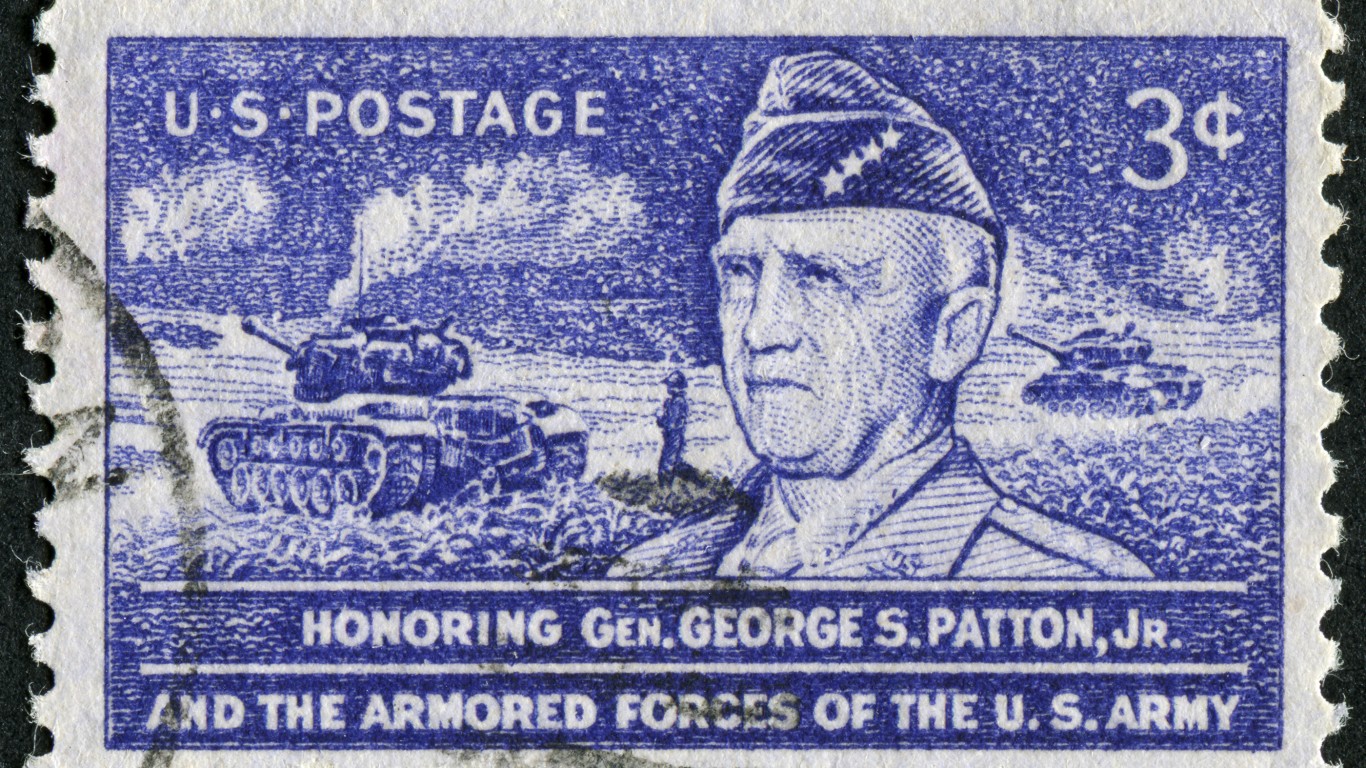
54. George S. Patton
> Nation: The United States
> Year(s) of peak military relevance: 1944
The controversial leader who once slapped two of his own men was also instrumental in the retaking of France.
[in-text-ad-2]
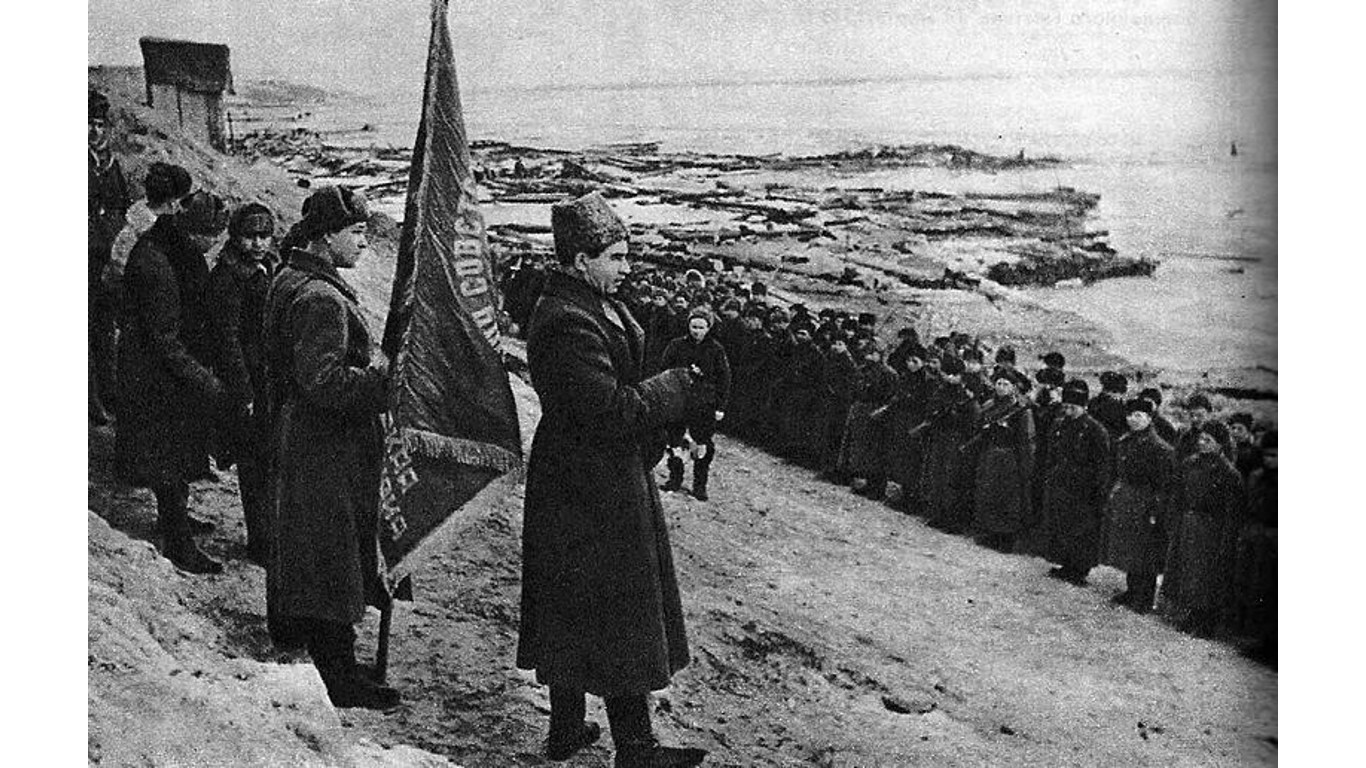
55. Vasily Chuikov
> Nation: The Soviet Union
> Year(s) of peak military relevance: 1942-1945
Vasily Chuikov’s indefatigable defense of Stalingrad marked the turning point in the war. He would go on to assist in the capture of Berlin.
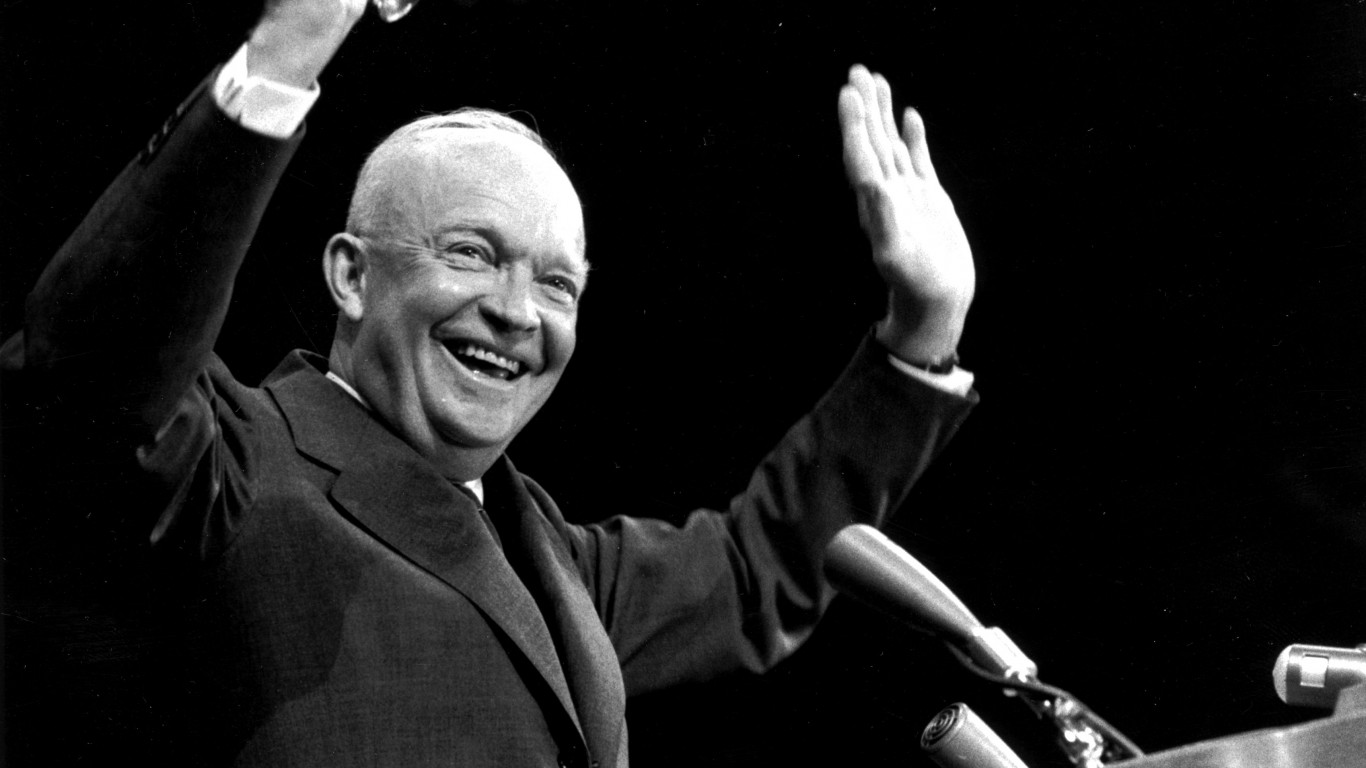
56. Dwight D. Eisenhower
> Nation: The United States
> Year(s) of peak military relevance: 1943-1945
Another future president of the United States, Eisenhower commanded the Allied invasion of Normandy and oversaw the defeat of Germany’s Western Front.
[in-text-ad]
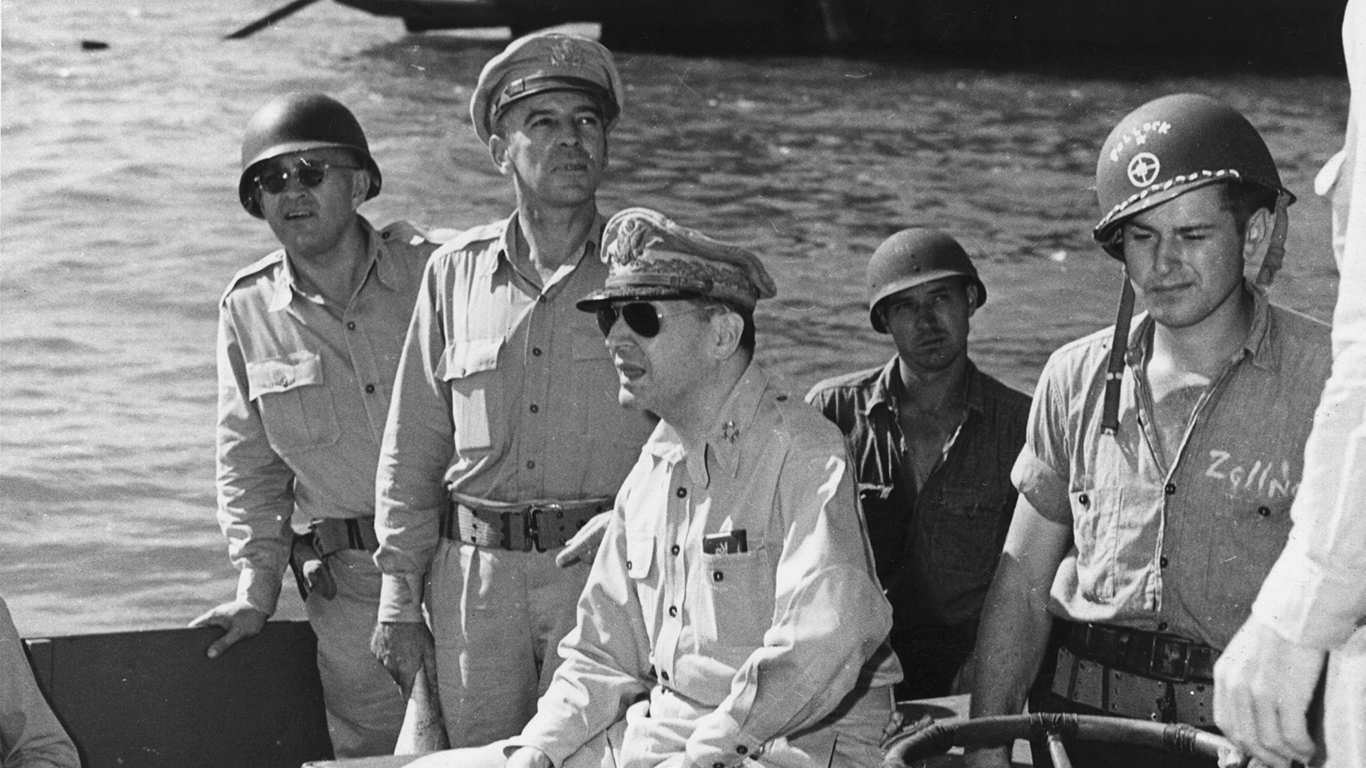
57. Douglas MacArthur
> Nation: The United States
> Year(s) of peak military relevance: 1941-1945
The newly-appointed Supreme Commander of the Pacific in the Southwest Pacific Area vowed to return to the Philippines in 1942 after Japan took over the islands. He was able to keep his promise two years later, winning the Medal of Honor in the process.
57. Moshe Dayan
> Nation: Israel
> Year(s) of peak military relevance: 1967
As chief of staff and later as defense minister during the Six-Day War, Moshe Dayan led Israel to victory over the combined strength of its neighbors Egypt, Jordan, and Syria, which also had additional support by other nations.
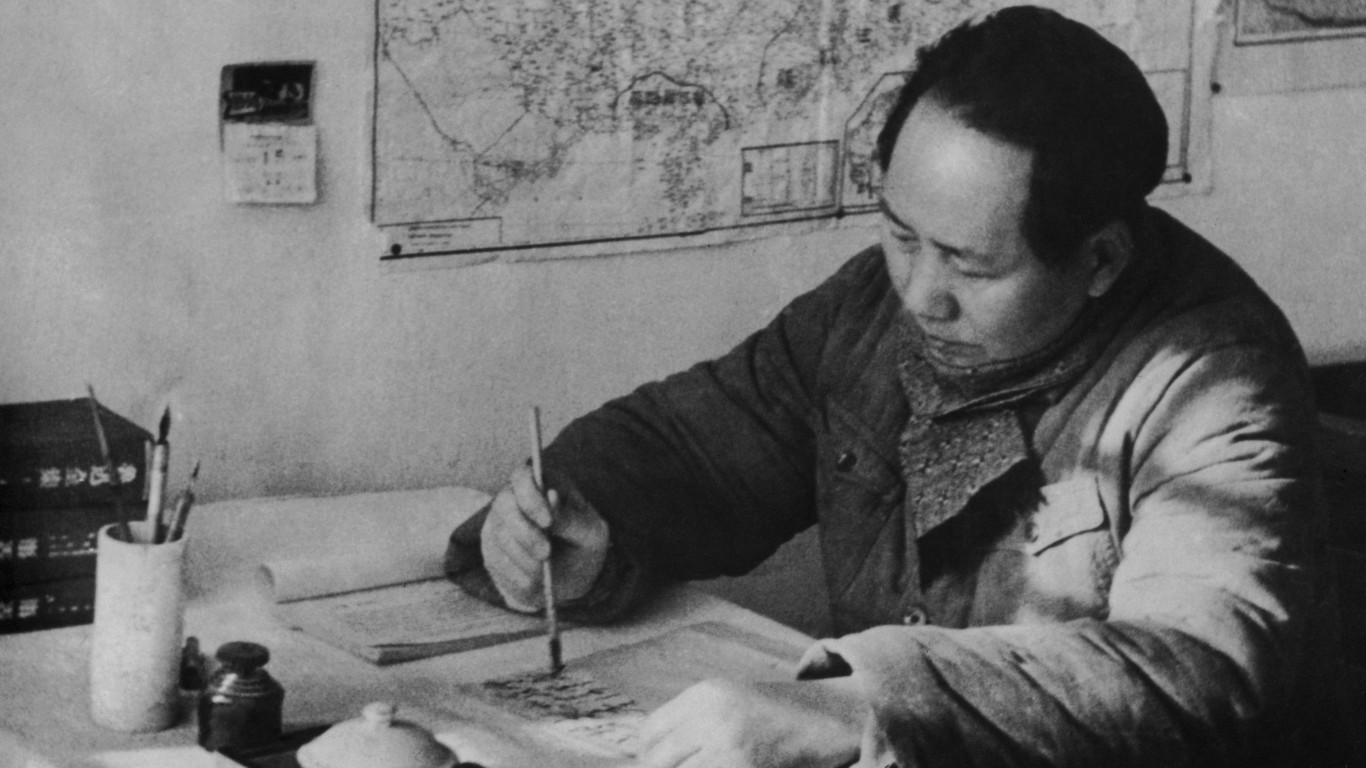
59. Mao Zedong
> Nation: China
> Year(s) of peak military relevance: 1937-1949
Mao Zedong used guerrilla warfare to defeat the Japanese invaders and then the Chinese Nationalist army, which was four times the size of his own, establishing Communism in China and becoming the party’s first chairman.
[in-text-ad-2]
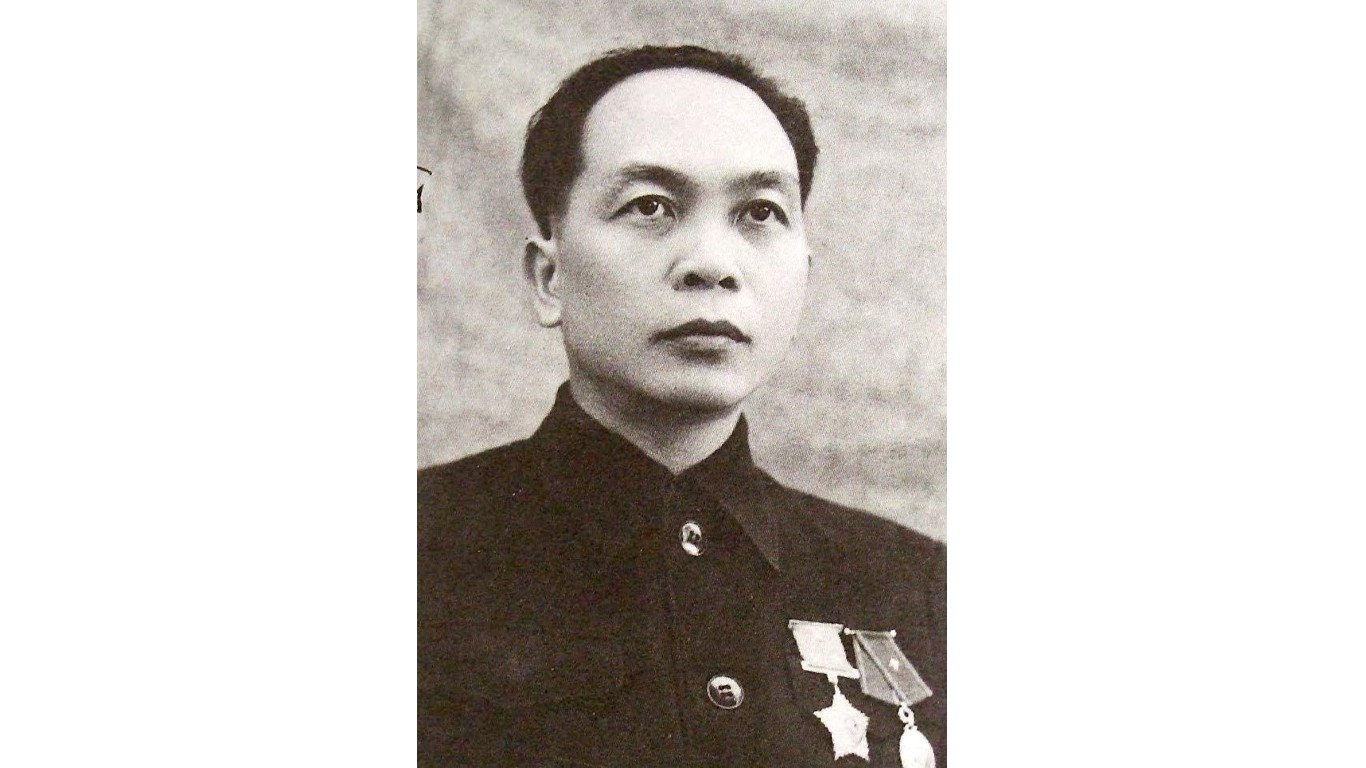
60. Vo Nguyen Giap
> Nation: Vietnam
> Year(s) of peak military relevance: 1954, 1975
Vo Nguyen Giap defeated the French at Dien Bien Phu, and his brilliant strategy and logistics defeated the South Vietnamese and Americans two decades later.
Get Ready To Retire (Sponsored)
Start by taking a quick retirement quiz from SmartAsset that will match you with up to 3 financial advisors that serve your area and beyond in 5 minutes, or less.
Each advisor has been vetted by SmartAsset and is held to a fiduciary standard to act in your best interests.
Here’s how it works:
1. Answer SmartAsset advisor match quiz
2. Review your pre-screened matches at your leisure. Check out the advisors’ profiles.
3. Speak with advisors at no cost to you. Have an introductory call on the phone or introduction in person and choose whom to work with in the future
Get started right here.
Thank you for reading! Have some feedback for us?
Contact the 24/7 Wall St. editorial team.
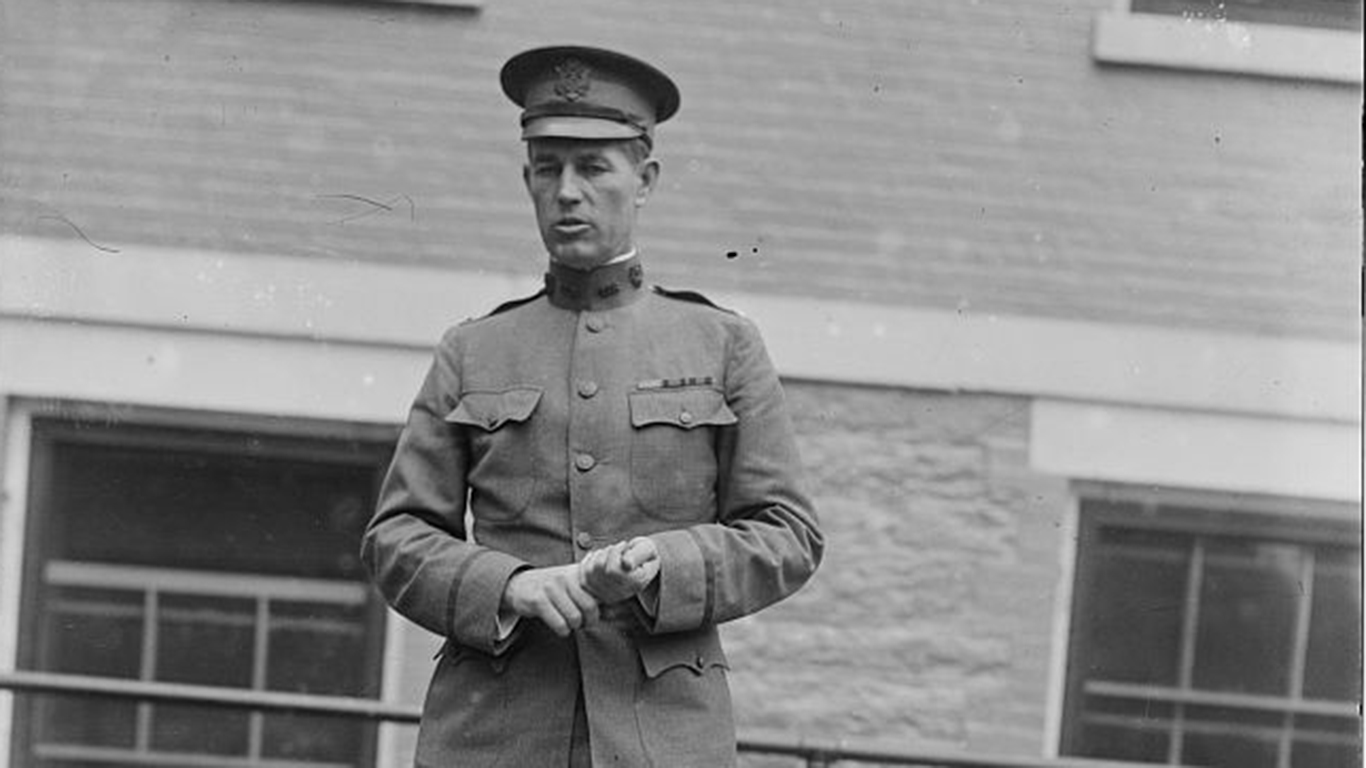 24/7 Wall St.
24/7 Wall St.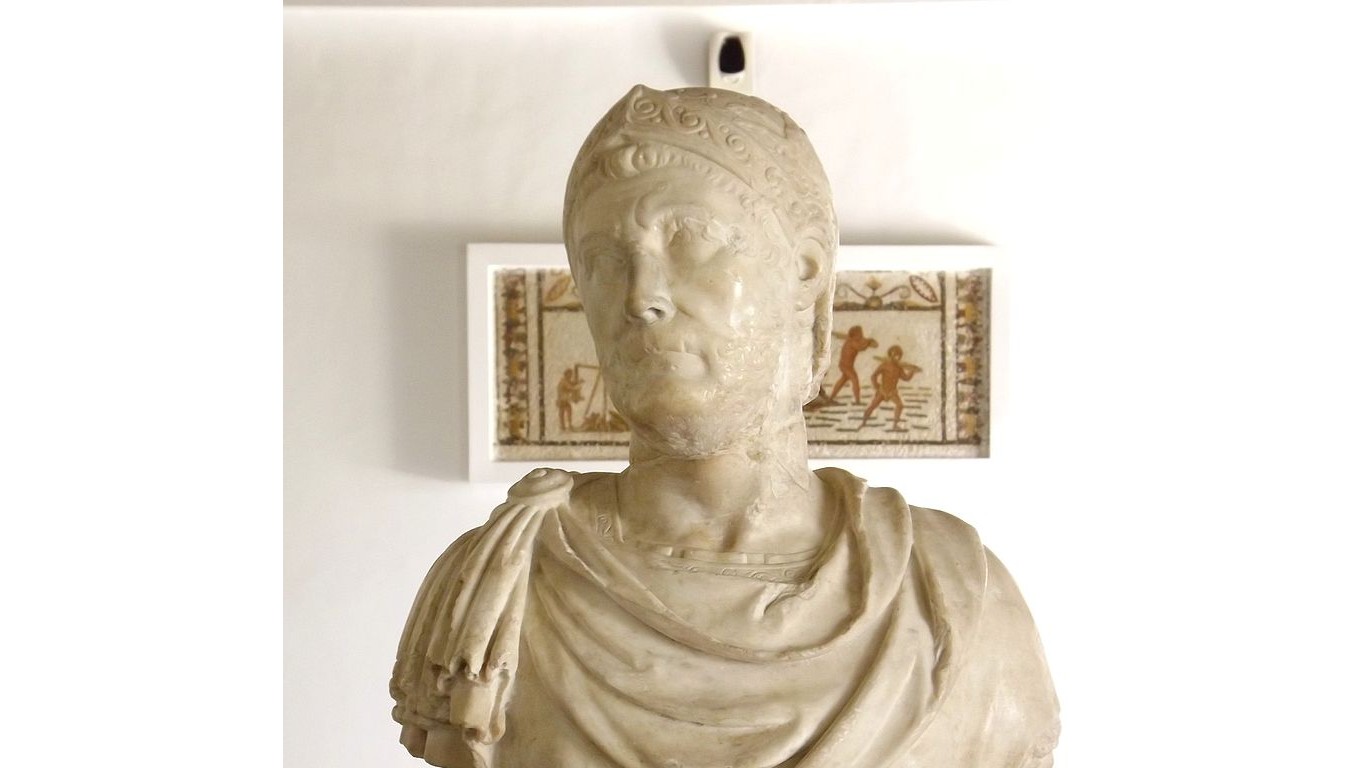
 24/7 Wall St.
24/7 Wall St.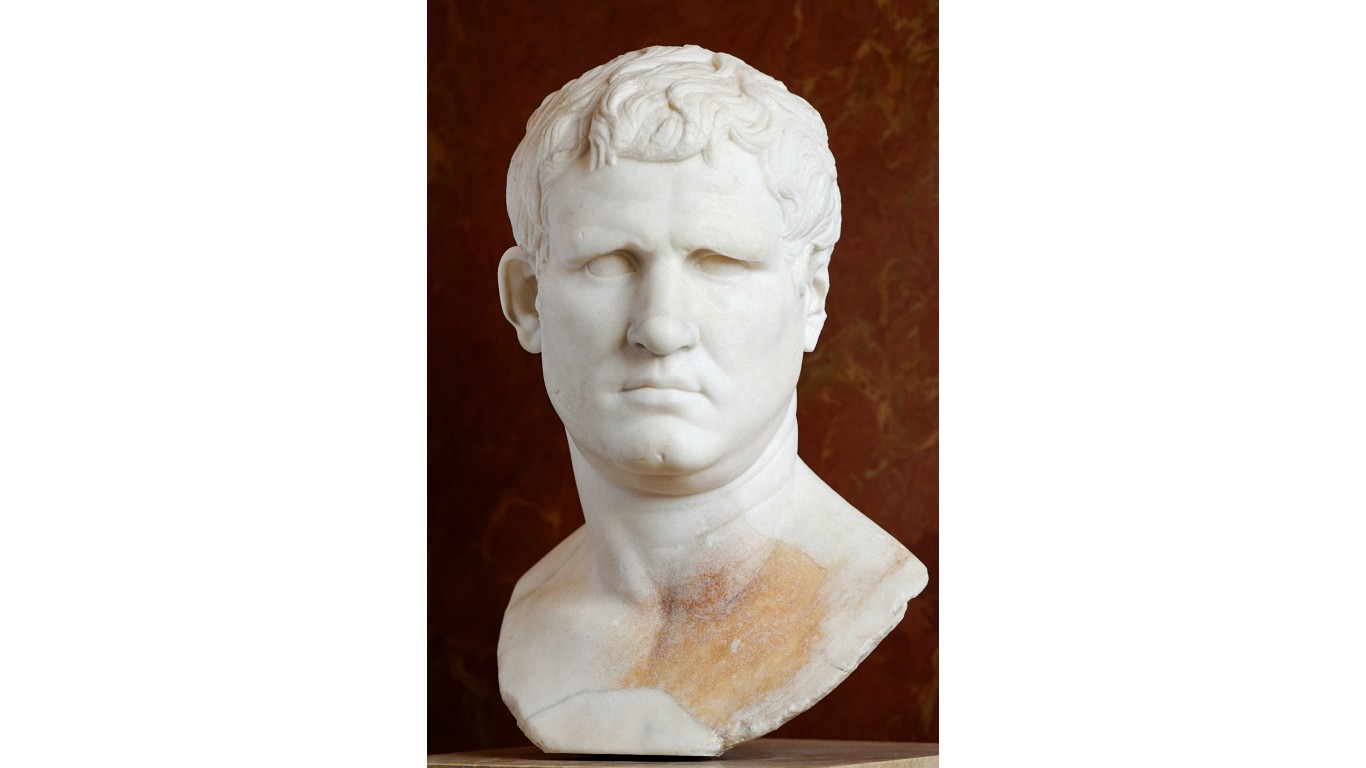
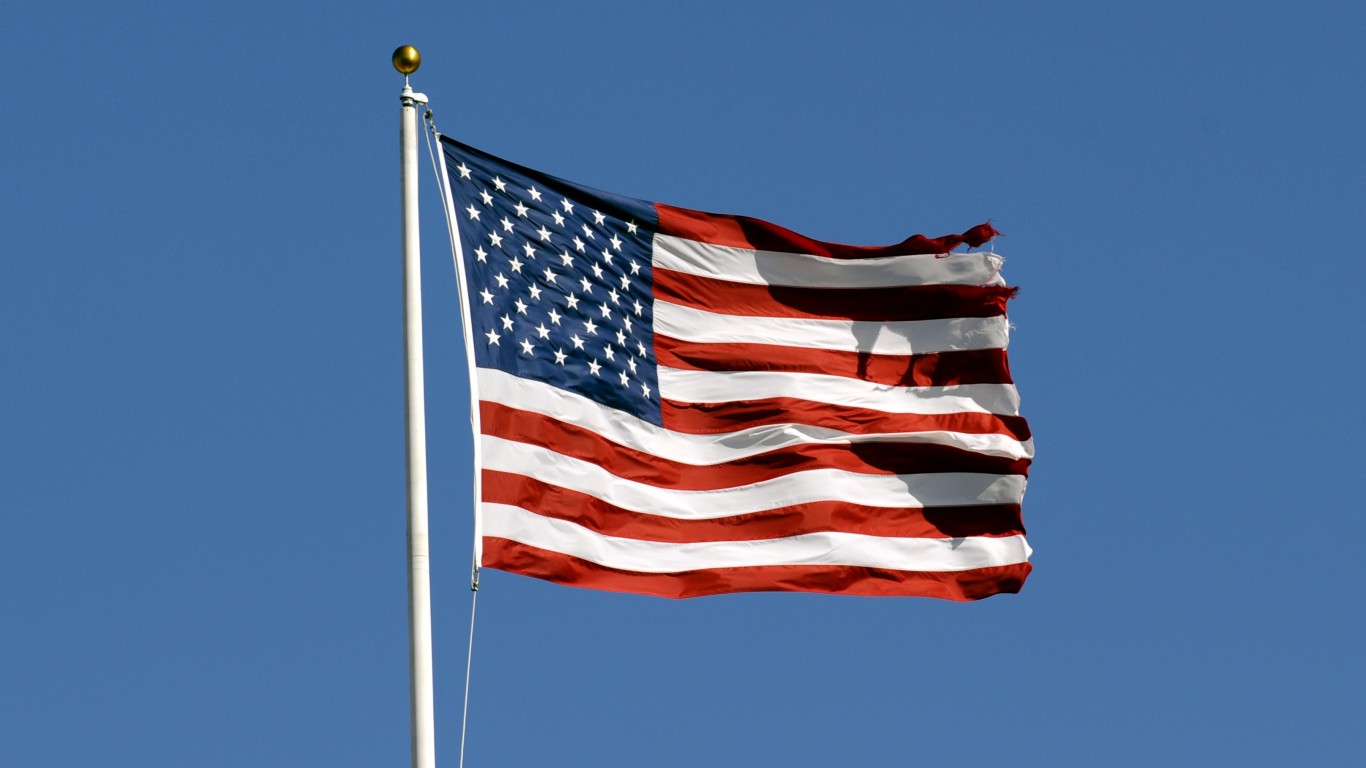 24/7 Wall St.
24/7 Wall St.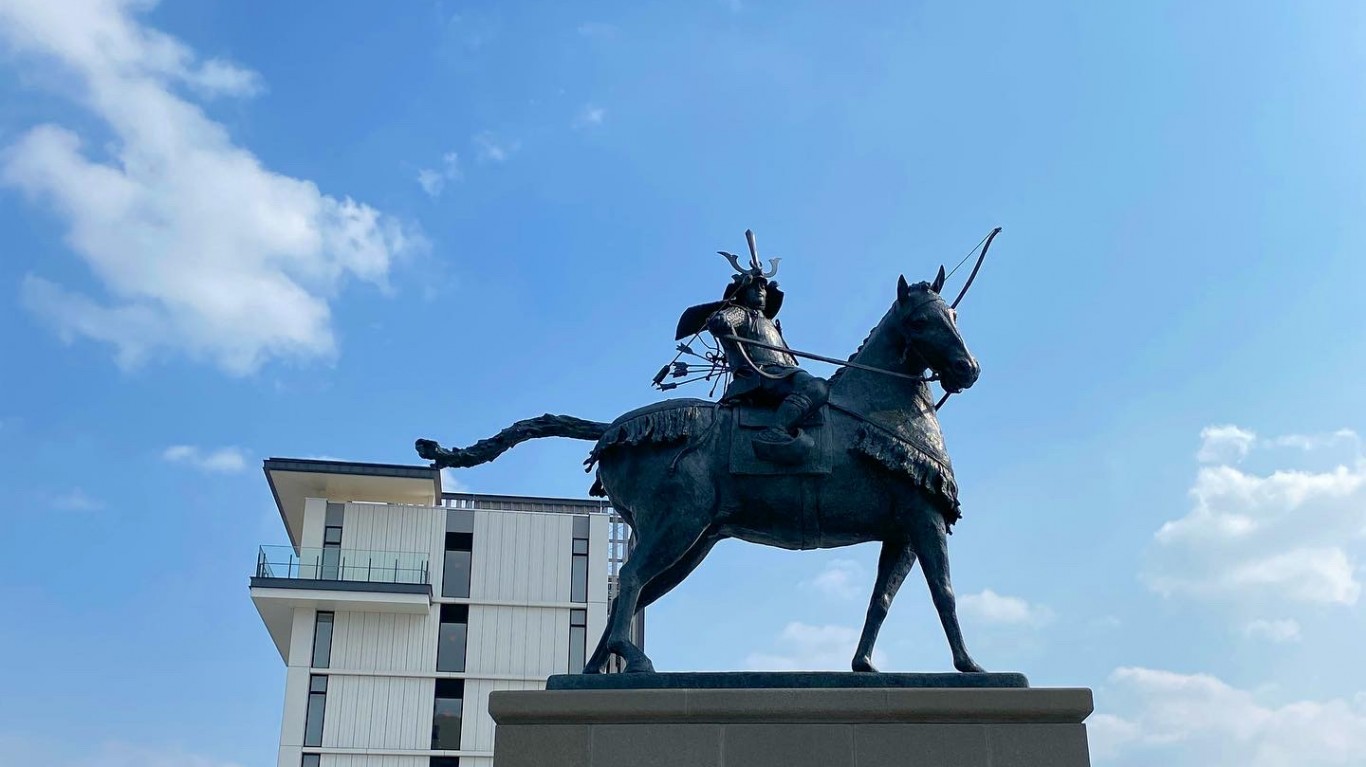
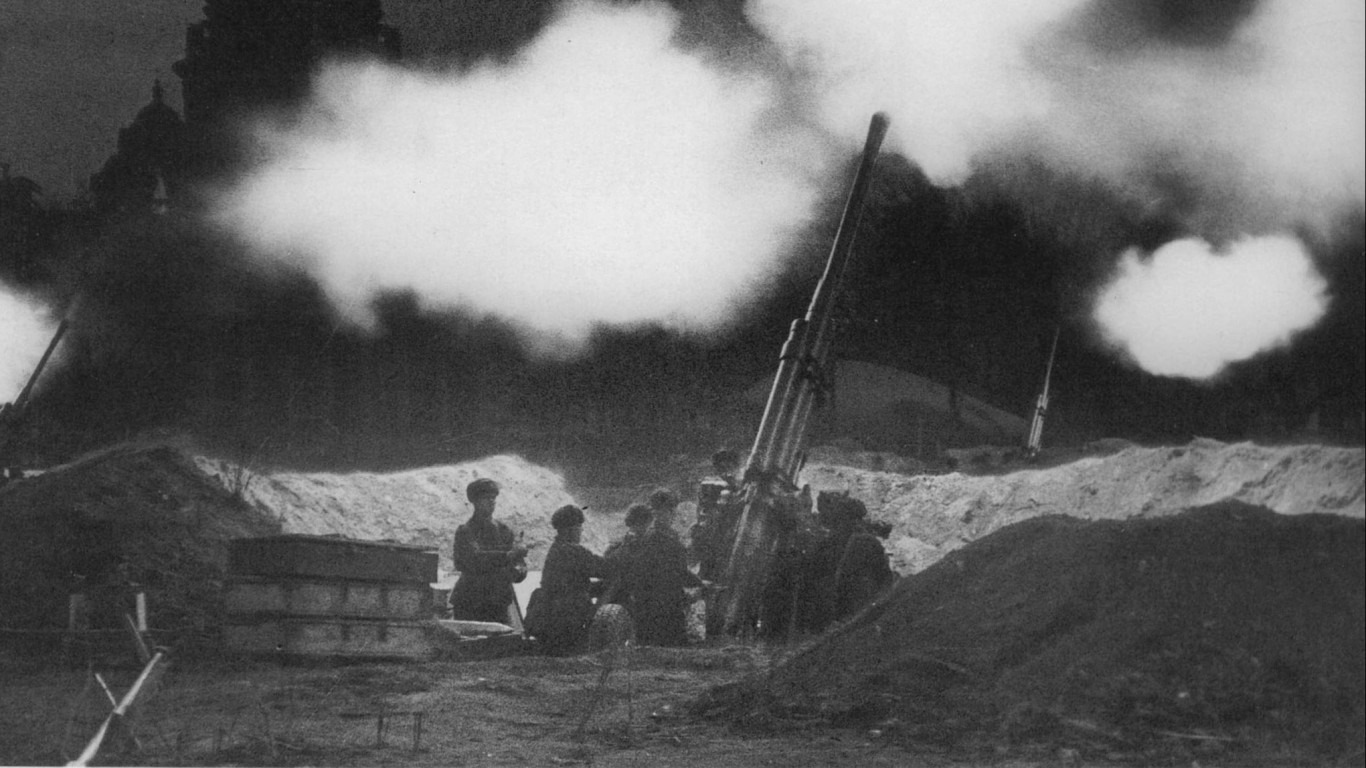 24/7 Wall St.
24/7 Wall St.